Welcome
For those that are new here: thank you for subscribing.
I'm an architectural photographer. I travel around Britain recording and interacting with special places that have a spirit about them. I work from my camper van called Woody and I share my experiences via this digest.
⚡️ Missed the last digest? Here it is.
⚡️ View the digest archive here.
⚡️ Can you help me achieve my goal? 📸🚐🏛
I love to hear your comments and feedback. Email me from here or return this email.
The Chapter House, Southwell Minster.
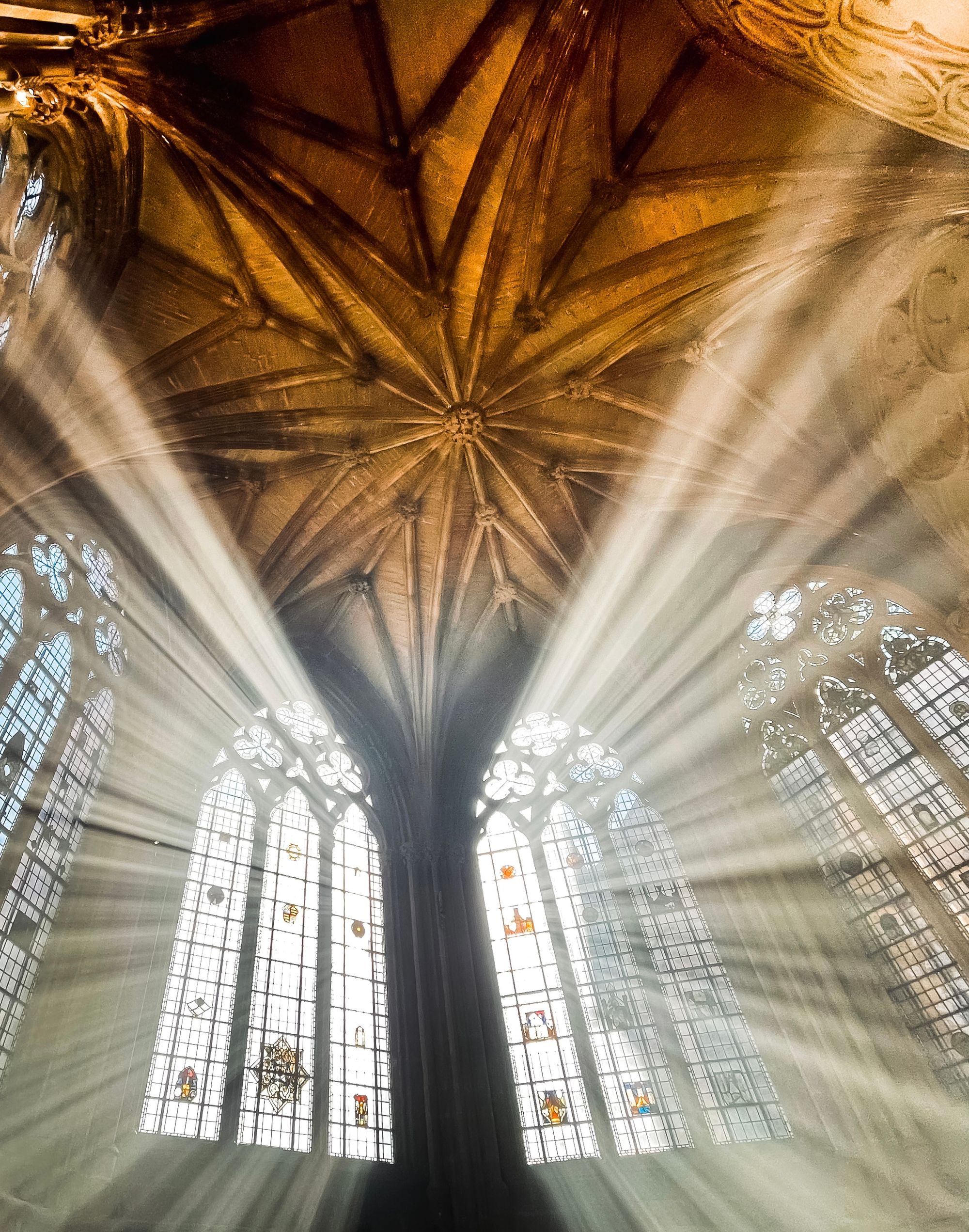
as the brick of the afternoon stores the rose heat of the journey
as the rose buds a green room to breathe and blossoms like the wind
as the thinning birches whisper their silver stories of the wind to the urgent in the trucks
as the leaves of the hedge store the light that the moment thought it had lost
as the nest of her wrist beats like the chest of a wren in the turning air
as the chorus of the earth find their eyes in the sky and unwrap them to each other in the teeming dark
hold everything dear
"as the leaves of the hedge store the light that the moment thought it had lost"
The Leaves of Southwell

The leaves of Southwell have been voted the nations favourite cathedral treasure. As a celebration, here's one of my diary entries from a previous visit.
“..the leaves of Southwell assume a significance as one of the purest symbols surviving in Britain of Western thought, our thought, in its loftiest mood.”
Nikolaus Pevsner, The Leaves of Southwell.
I arrive at Southwell and head straight for the Chapter House.
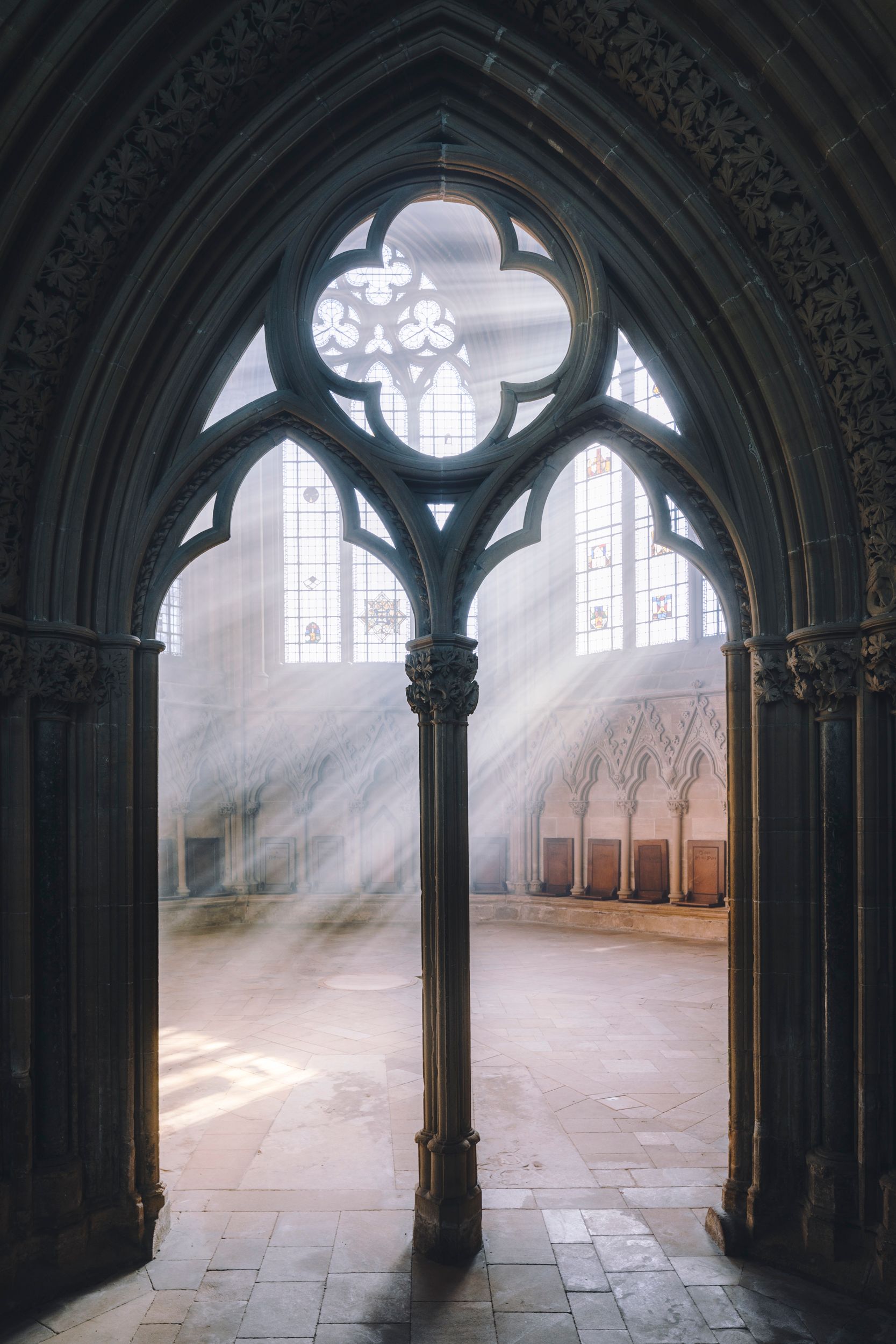
The early morning light is dancing around the stone carvings. The intricately sculptured leaves render this space a marvel of the Gothic genre.
On looking at the carvings in this softened light, my first thought is of the skill, dedication and craftsmanship that has gone into the work. But, there’s something else - I can’t quite put my finger on it. I let it go and take in the marvel by walking around the circumference of the chapter house.
I savour the moment by tracing a line of foliate intricacy; my eyes move from leaves that flicker like the flame of a candle, to delicate bracts that cup and pool the light within their concave forms. And then it hits me: beyond the marvel of the craftsmanship is the complex and profound connection with nature - an understanding that must have been based upon a lifetime’s observation of natural forms.
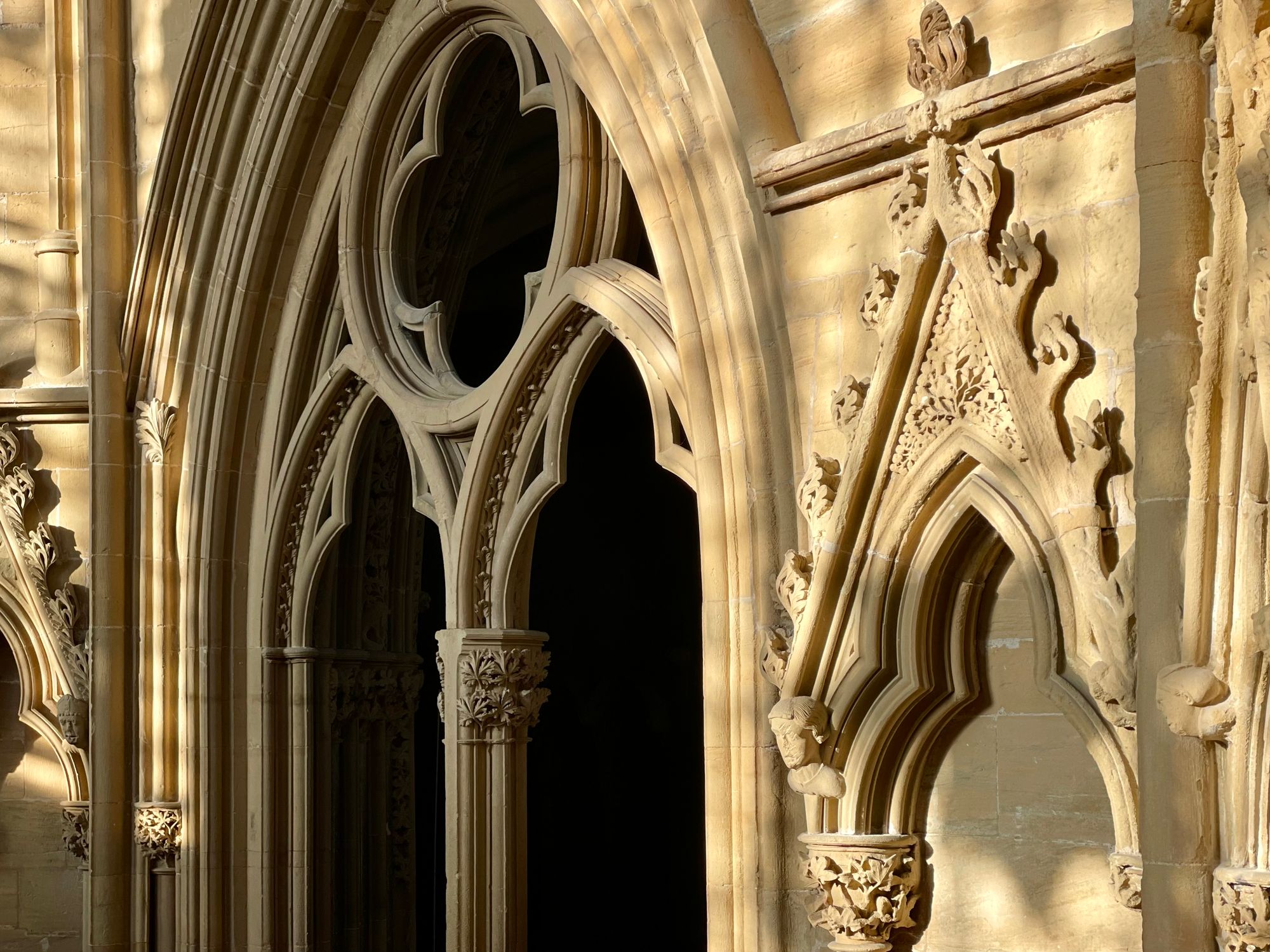
And then I think again. I think of the stone. I think of how these lifeless lumps have been gifted a plasticity that proffers up the curl of a frond. There is a state where the artist becomes so immersed in their task that they become the object of their interest - they become the subject matter. It is a way of understanding by association and immersion rather than objective comprehension. It gifts the carvings an authenticity that breaks through the shackles of stone and mortar.
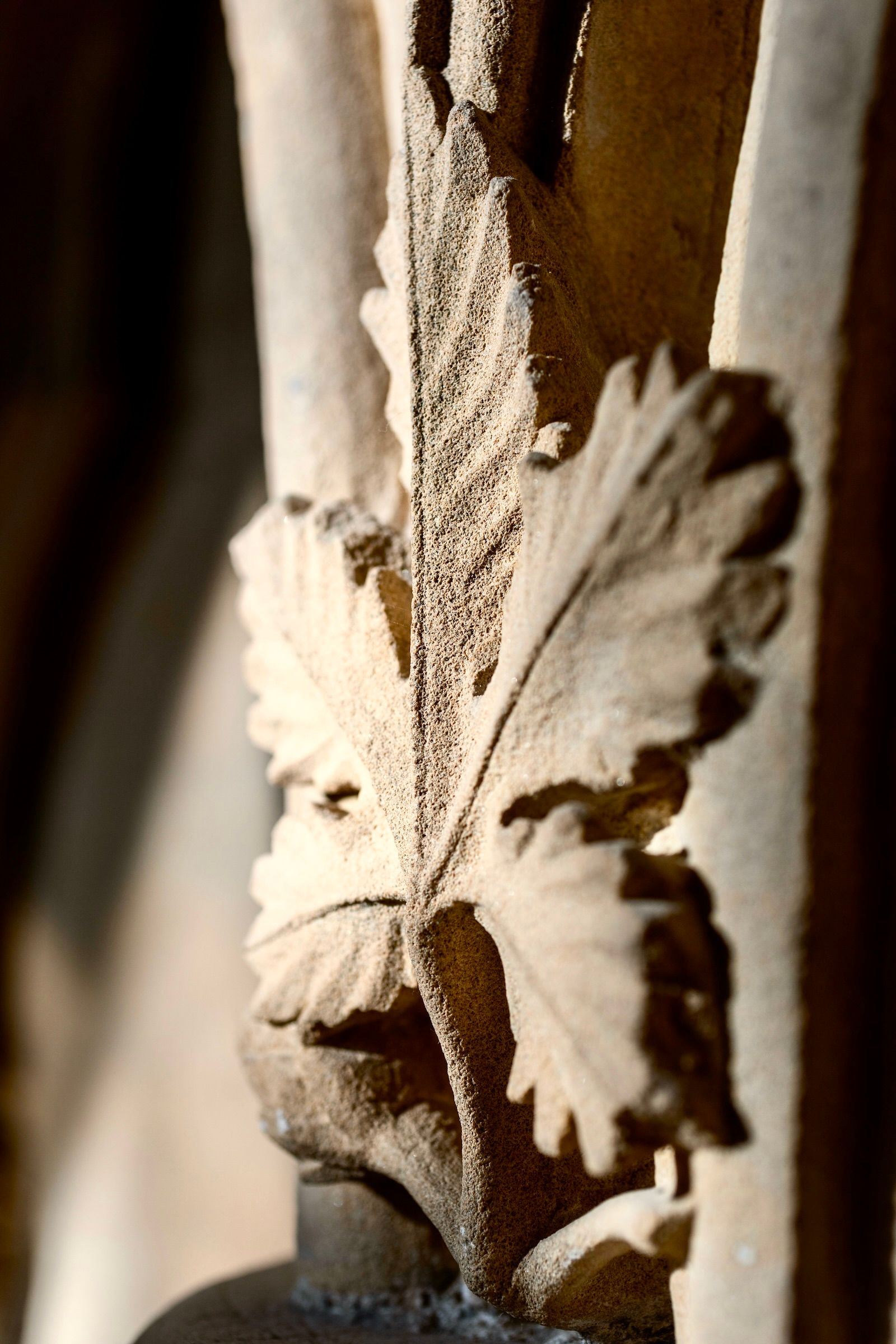
I think of how much time and patience it must take to make such a thing. I’m told that the people who made it had a life expectancy of 40 years, but without our digital fast-paced world and their slow absorption of their own environment, their lives must have felt twice as long as our three score and ten.
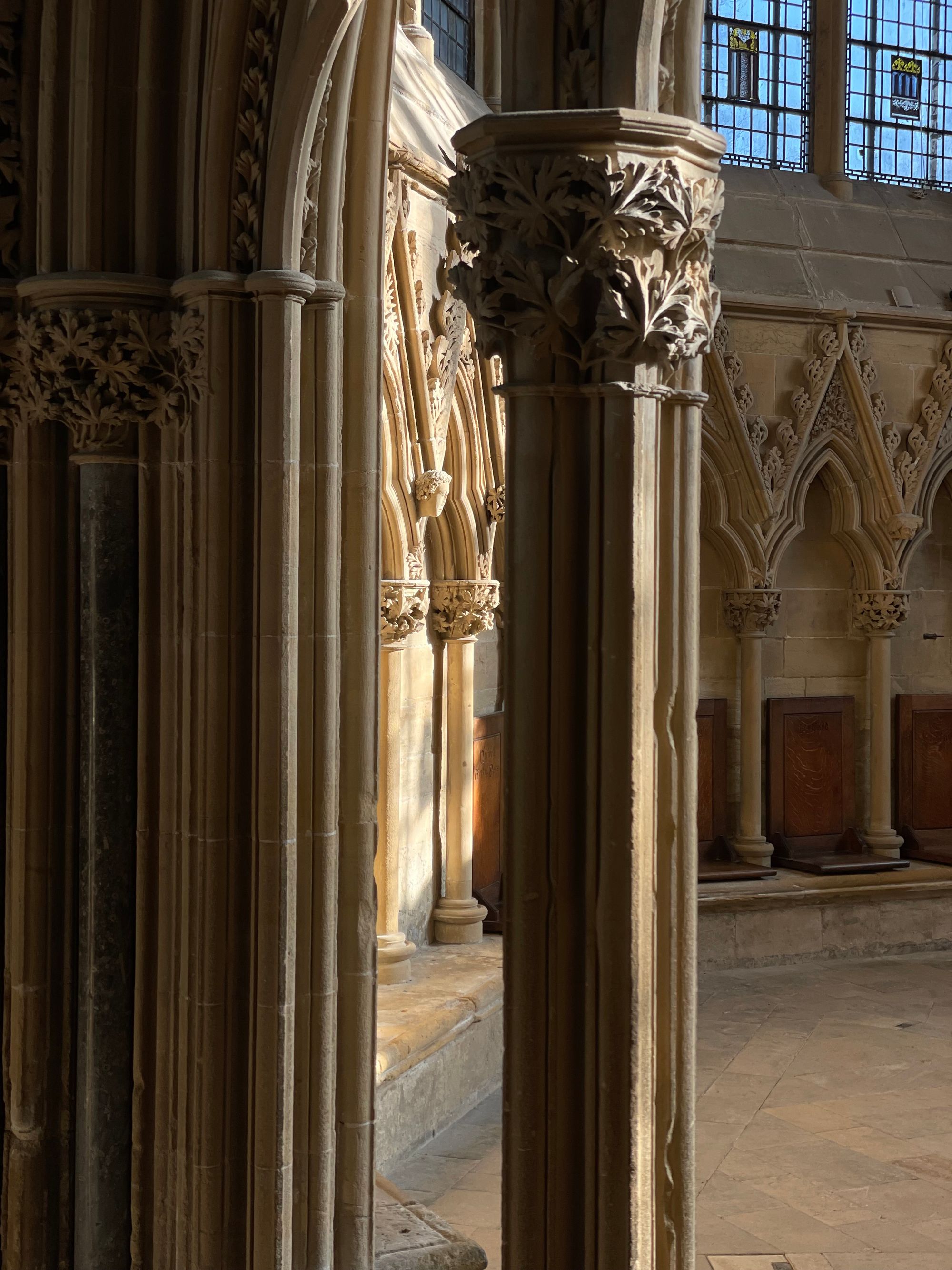
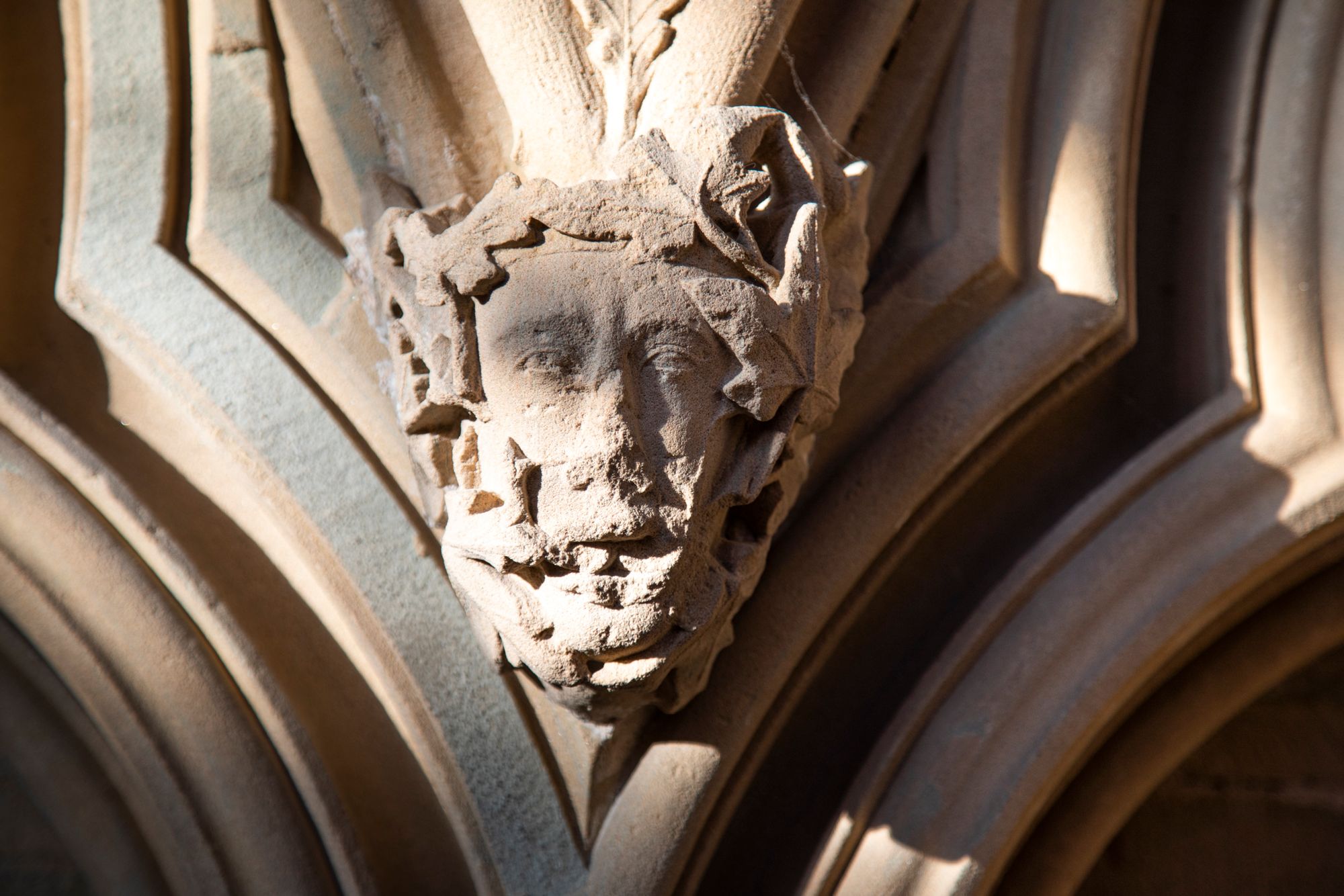
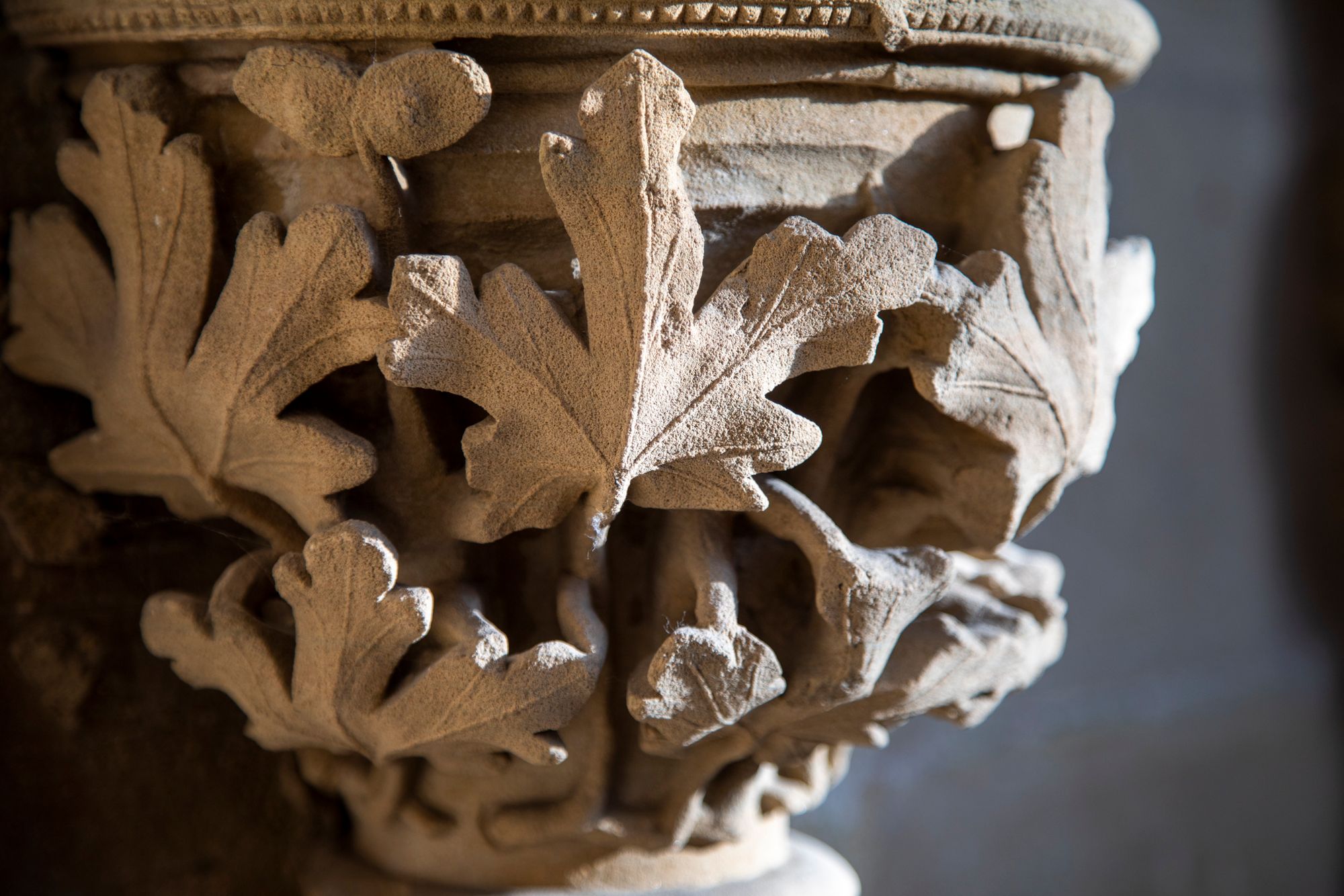
With thanks to Buttress Architects.
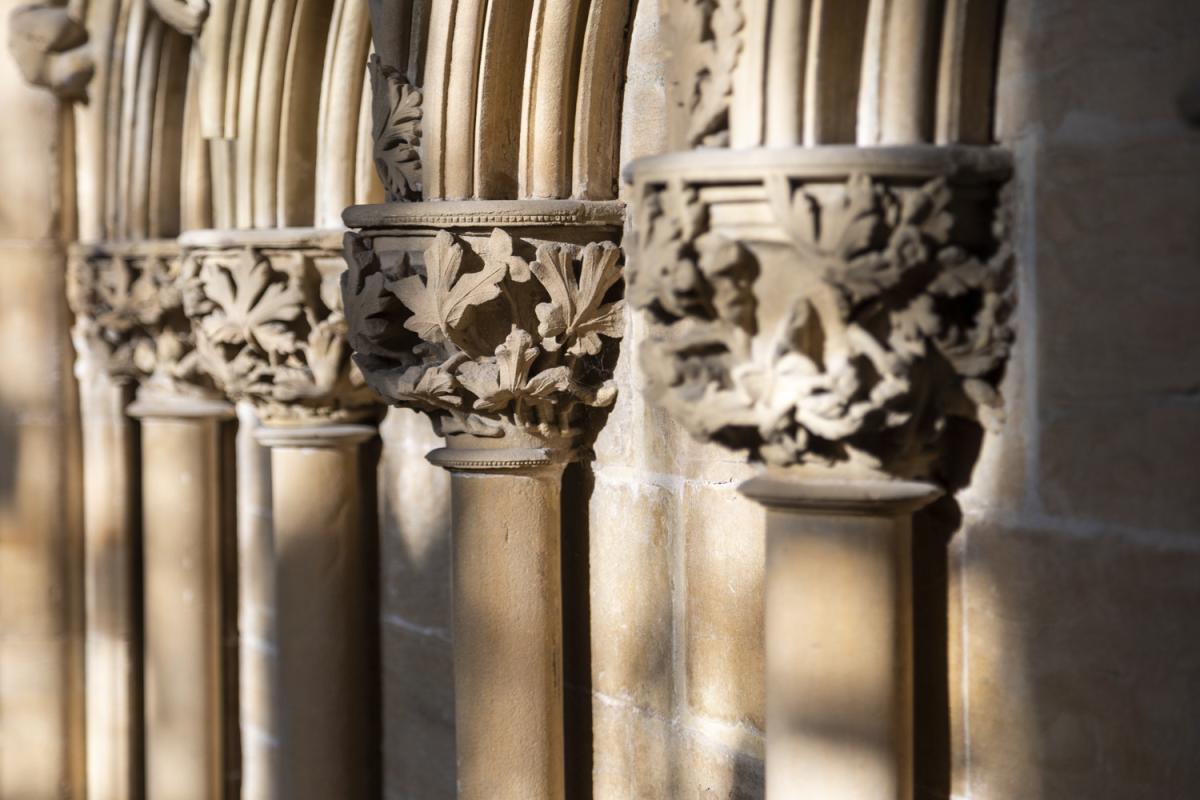
"as the thinning birches whisper their silver stories of the wind to the urgent in the trucks"
Pershore, Worcestershire
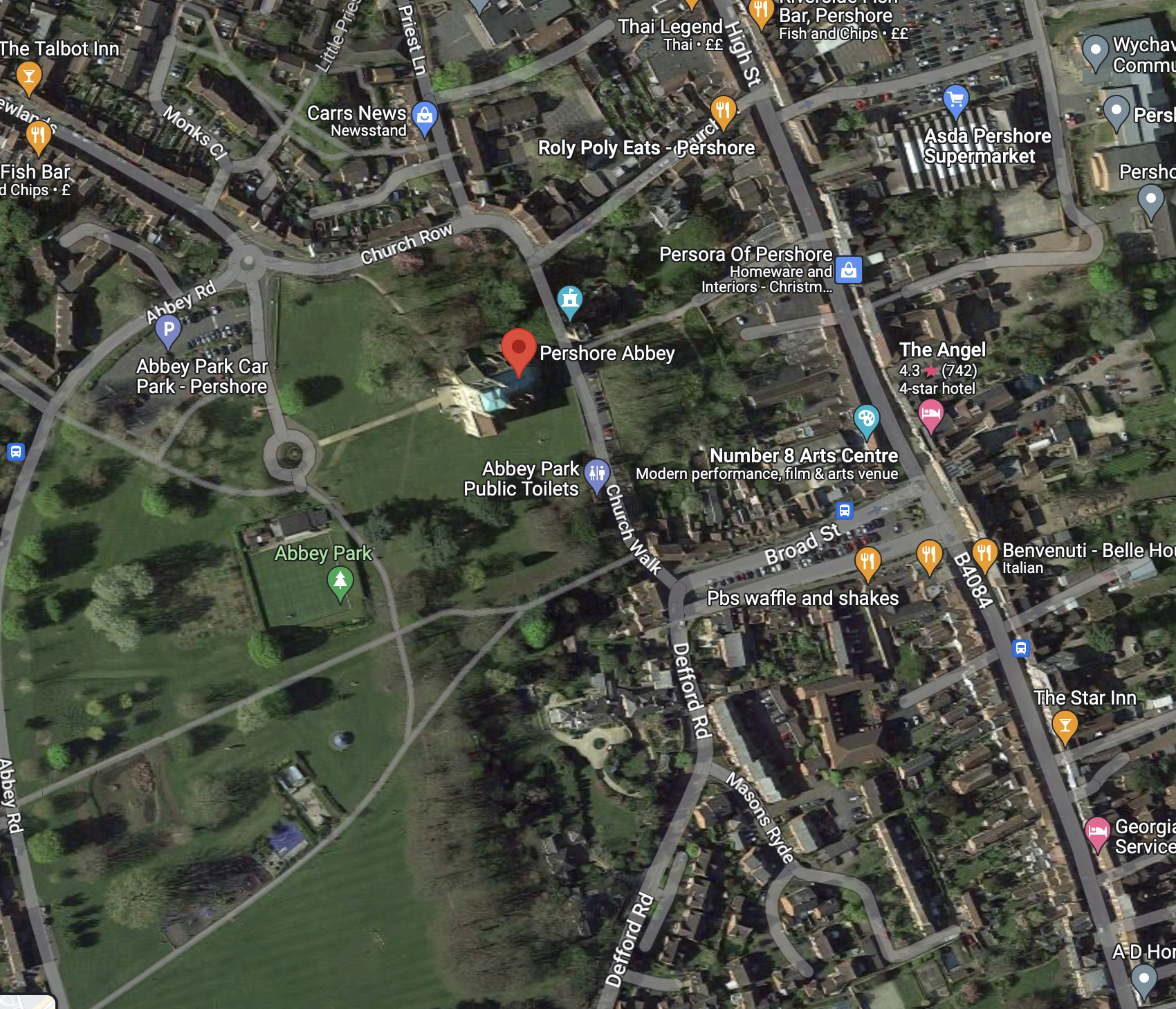
I'm heading home and my route is taking me through Pershore. I'm in two minds as to whether I should stop or stay, until I hear the trees whisper in Abbey Park.
It's a windy day and they bend towards a tower that is old and stock and bears lots of scars. It is a church now, but once was an abbey - much reduced in its size. The standing archaeology points to more favourable times. The building has been subject to the trauma of the Reformation.
Pershore Abbey or the Abbey Church of the Holy Cross.
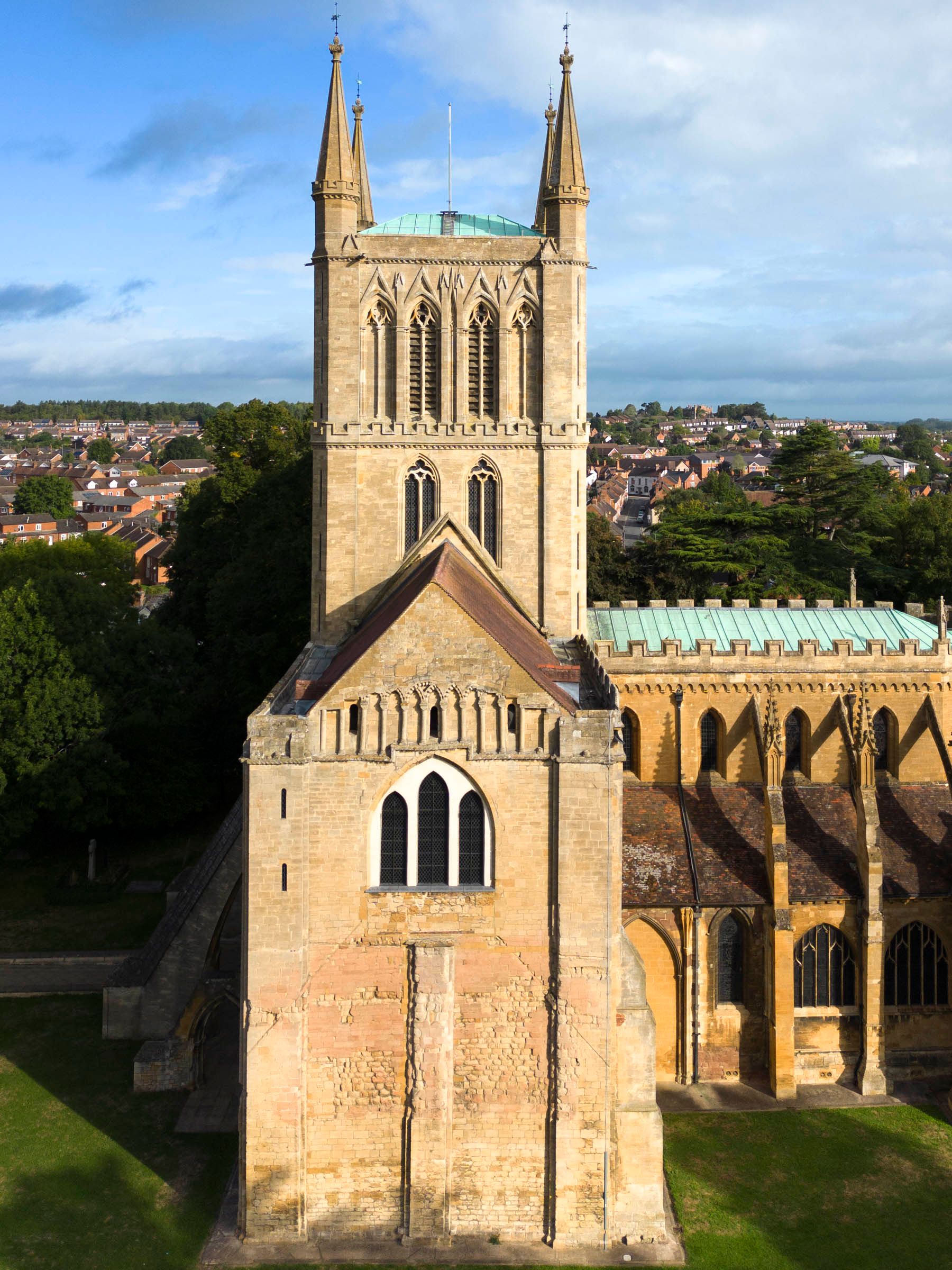
I just love buildings like this: standing proud, gnarled and weather-beaten with a layered and textured patina that sees one epoch crash into another. Ghost gables abound, and walls that were once inside are now outside.
And then there's a double delight - the former medieval church of St. Andrew - built to serve the secular community - is now the parish hall. They sit together like a mother goose and gosling in tow.
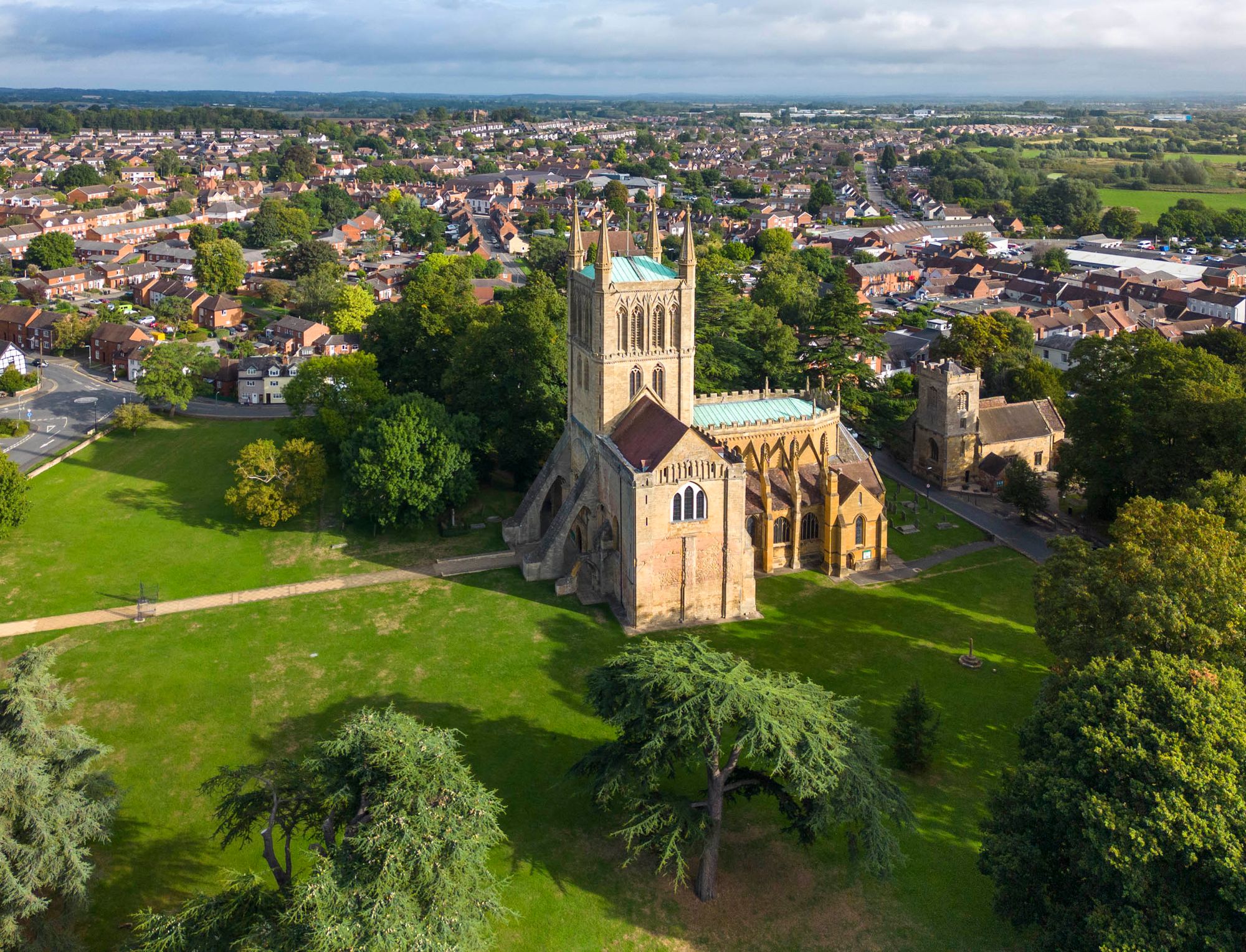
Founded in Anglo Saxon times under the patronage of Mercian kings, the majority of the existing building dates from between the C11th and C13th. There was a major restoration by Giles Gilbert Scott in the 1860's.

For those that are new to eyeing up the periods of a building - look at the photo above. There's a distinct difference between the organic nature of the south transept (older) and the precision crafted pinnacles to the tower (newer).
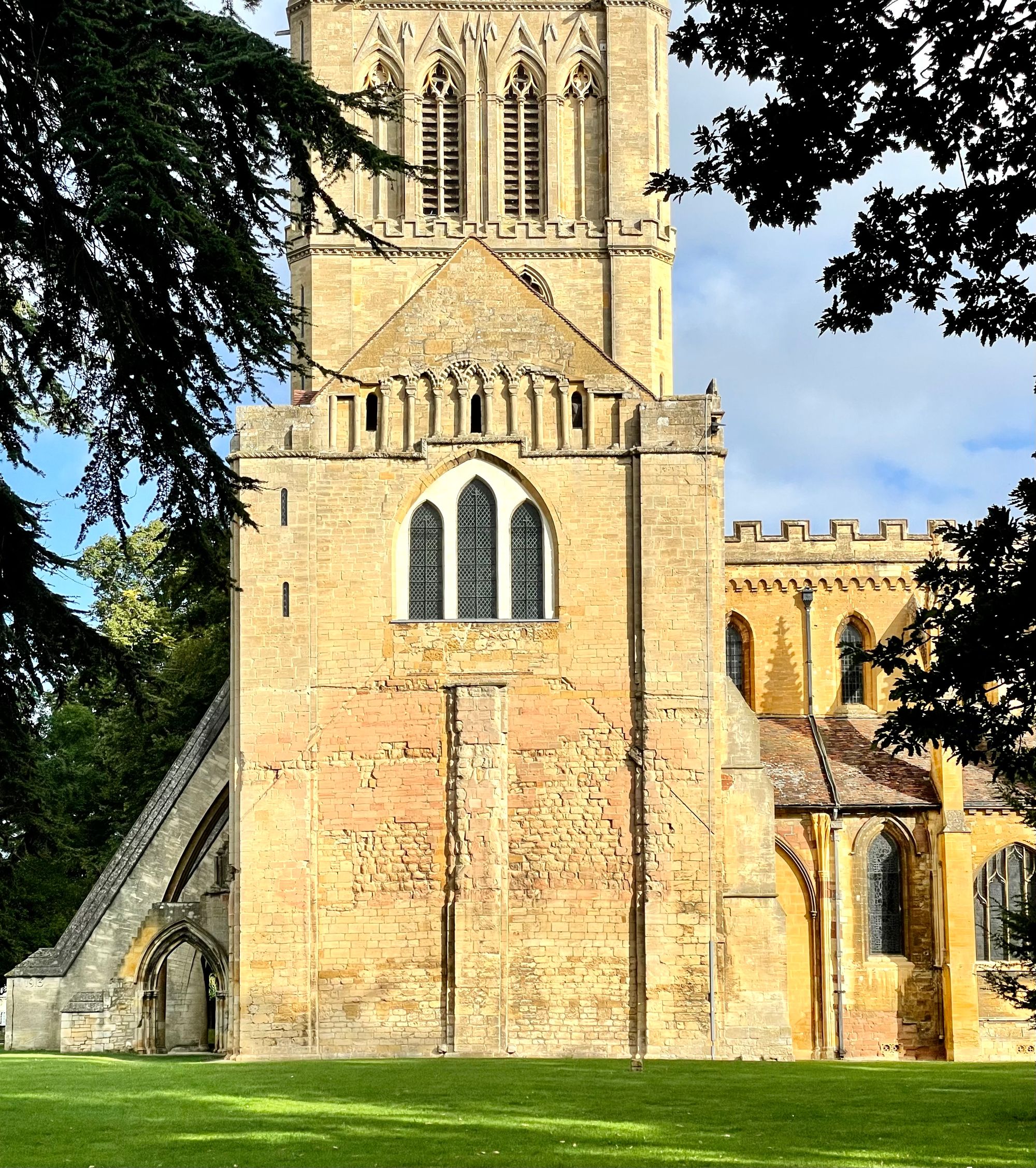
The south aisle bears its story, with its Romanesque origins highlighted by the chevroned blind arcading to the top gable. The ghost gable is of a former monastic building with a central pier.
To the east side of the transept is a glorious concoction of layered history in stone. Springing points that terminate in truncated bosses reveal the former existence of vaulting. The crocketed blind arcading was once on the inside - a sedilia and piscina.
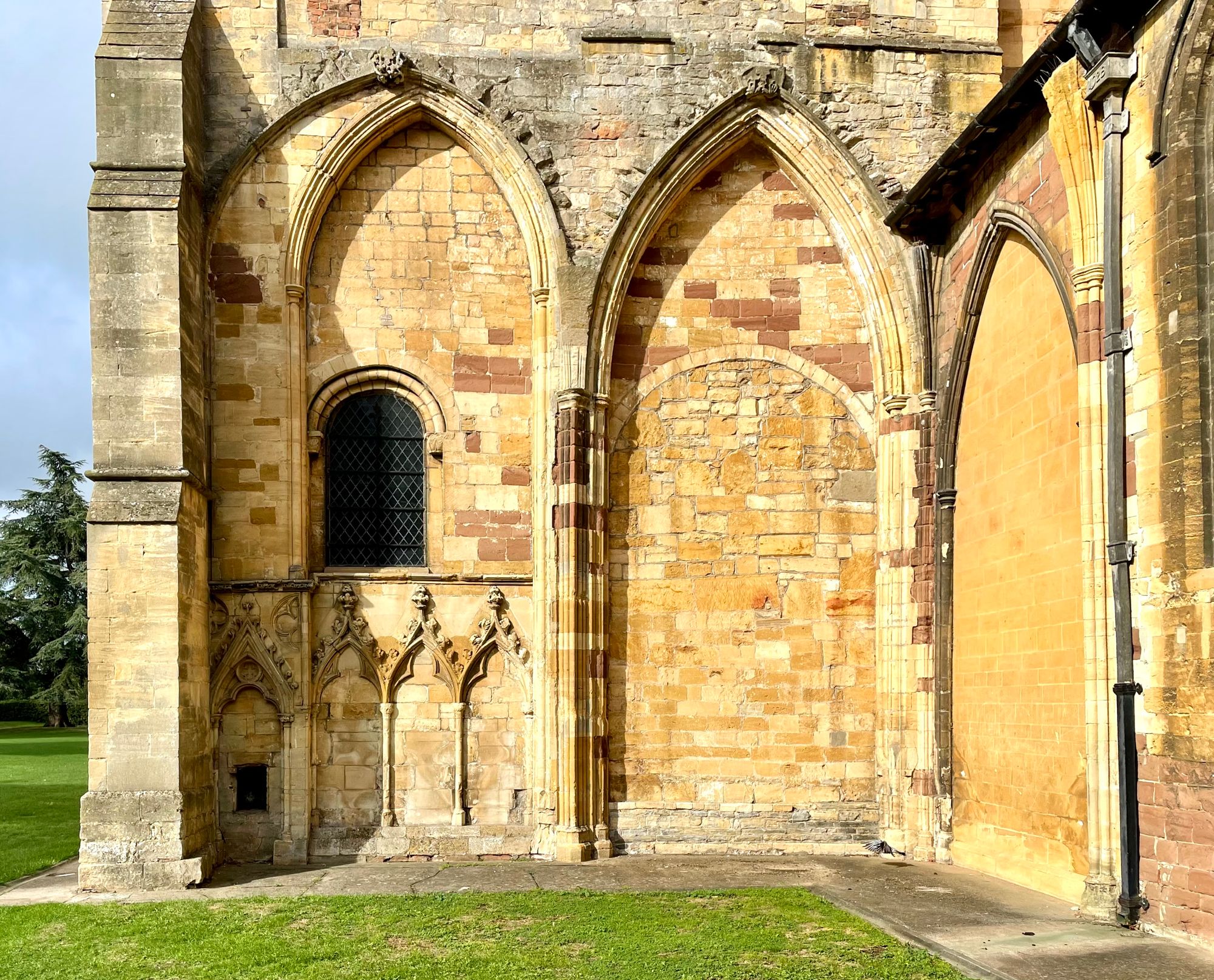
Members can see an aerial video of the abbey church by clicking the box below (it looks like a model in a tiny village):
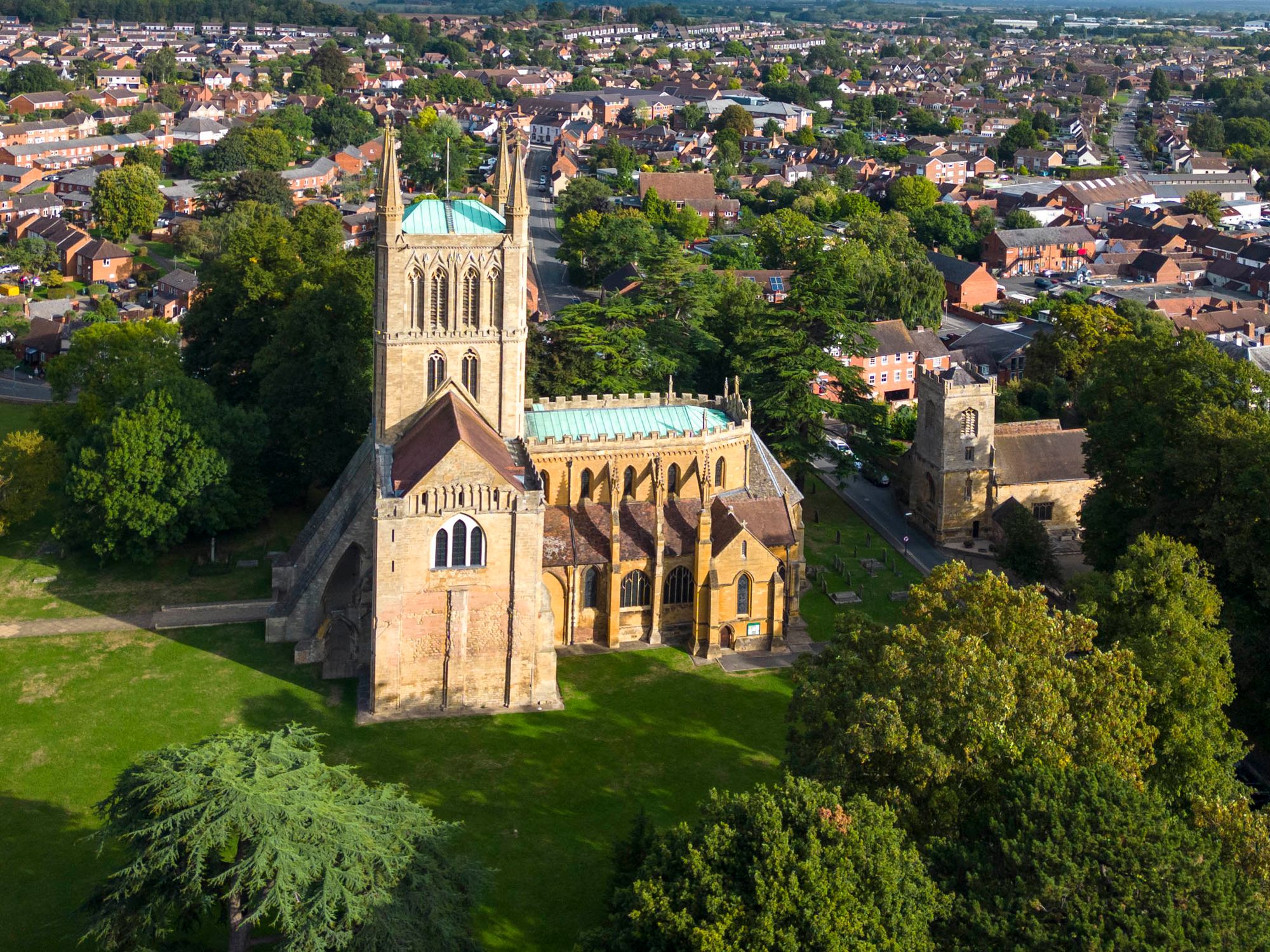
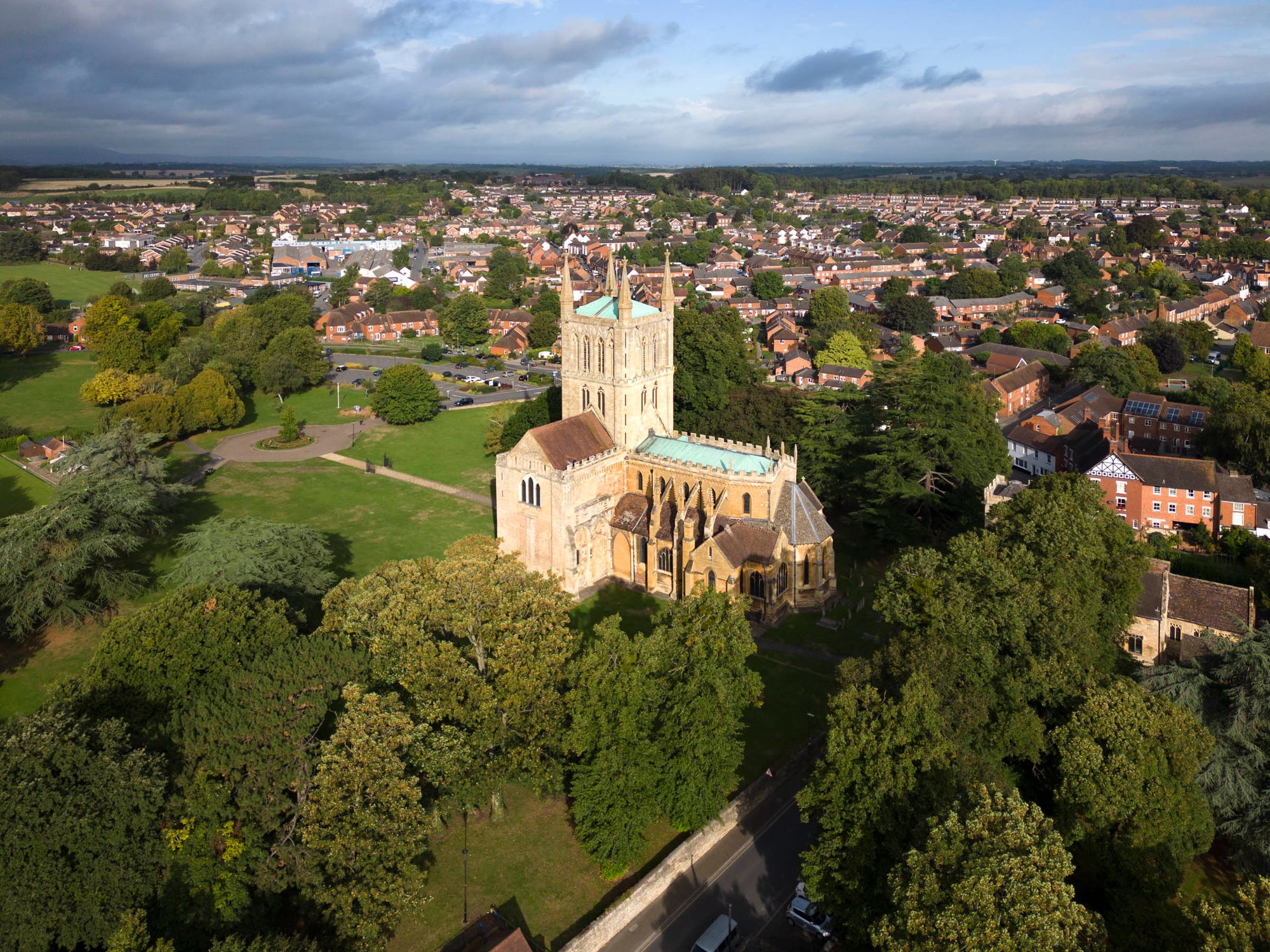

Interior
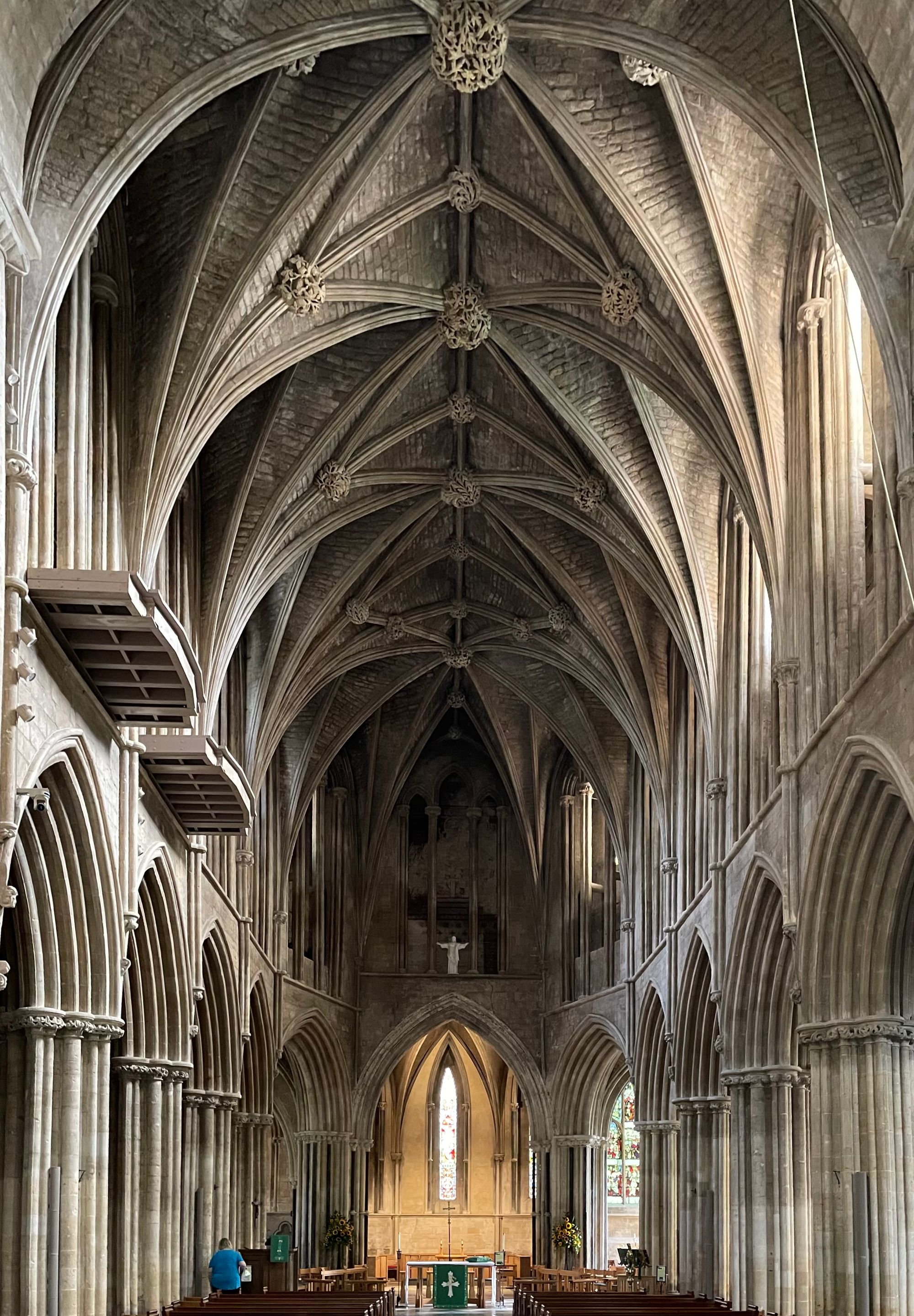
Much of the abbey church was destroyed during the Dissolution of the Monasteries. The current nave was once the Quire and has some of the most spectacular Early English ploughshare vaulting in the country
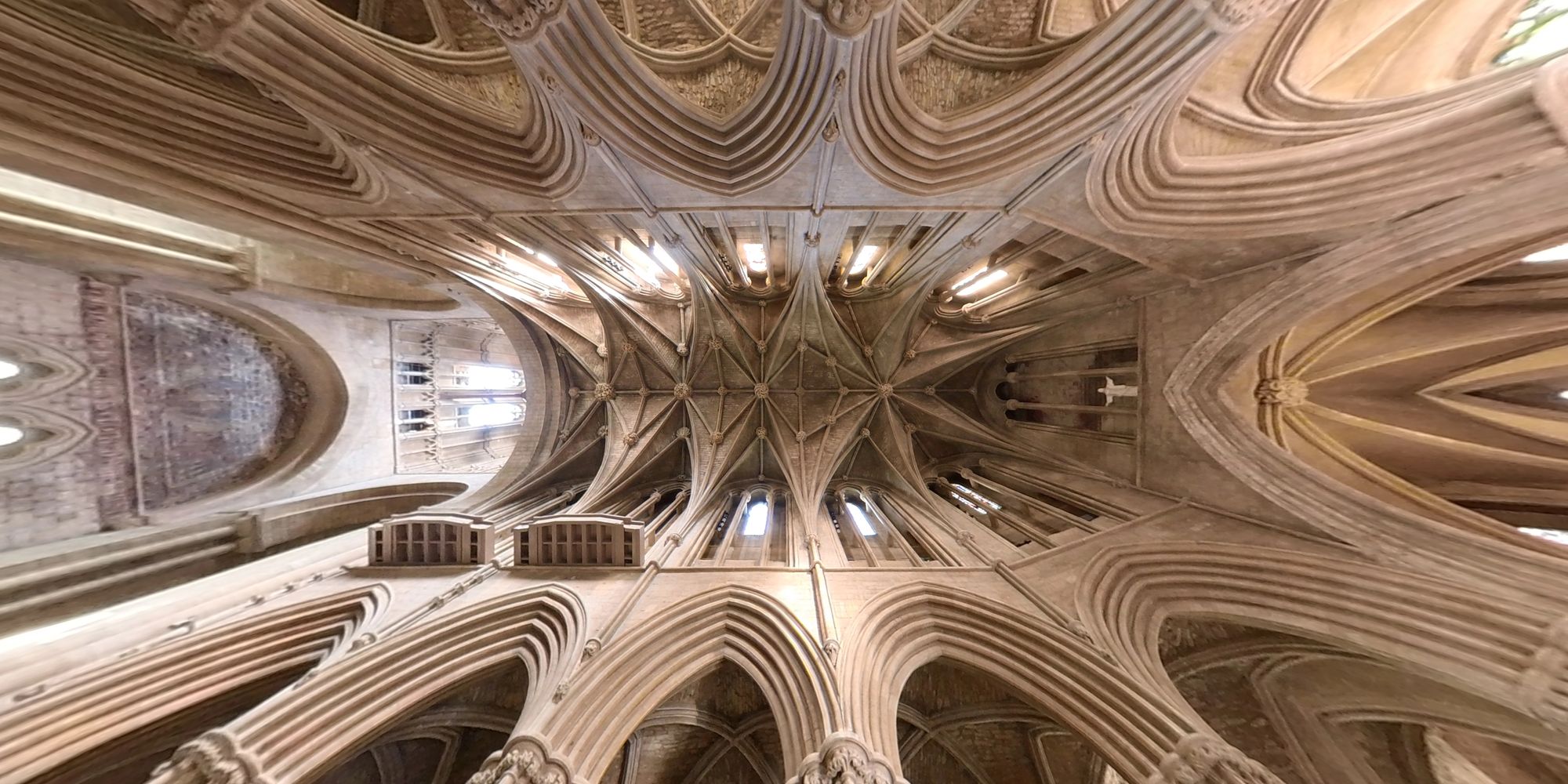
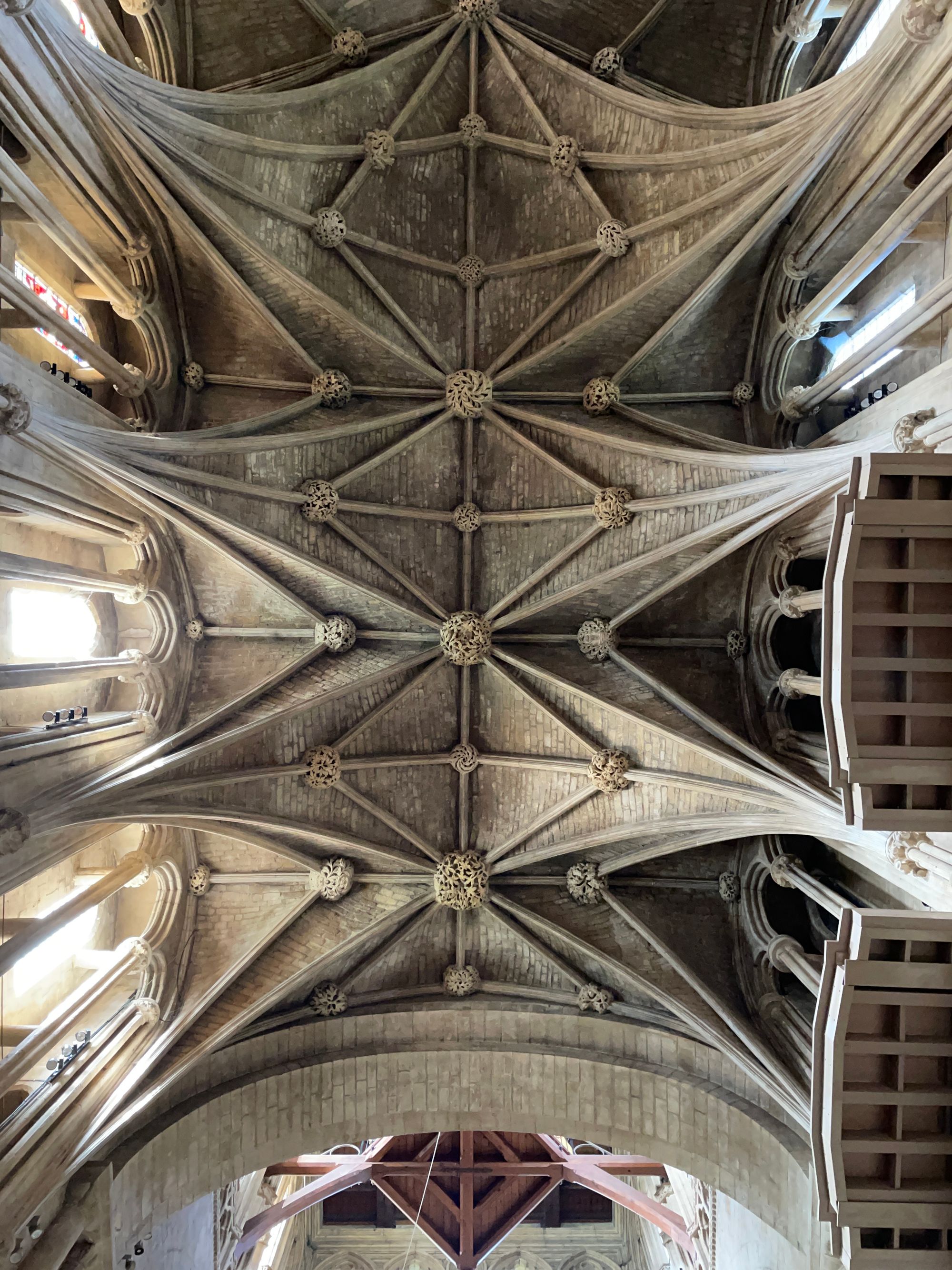
Members can see the vaulting in virtual reality here:
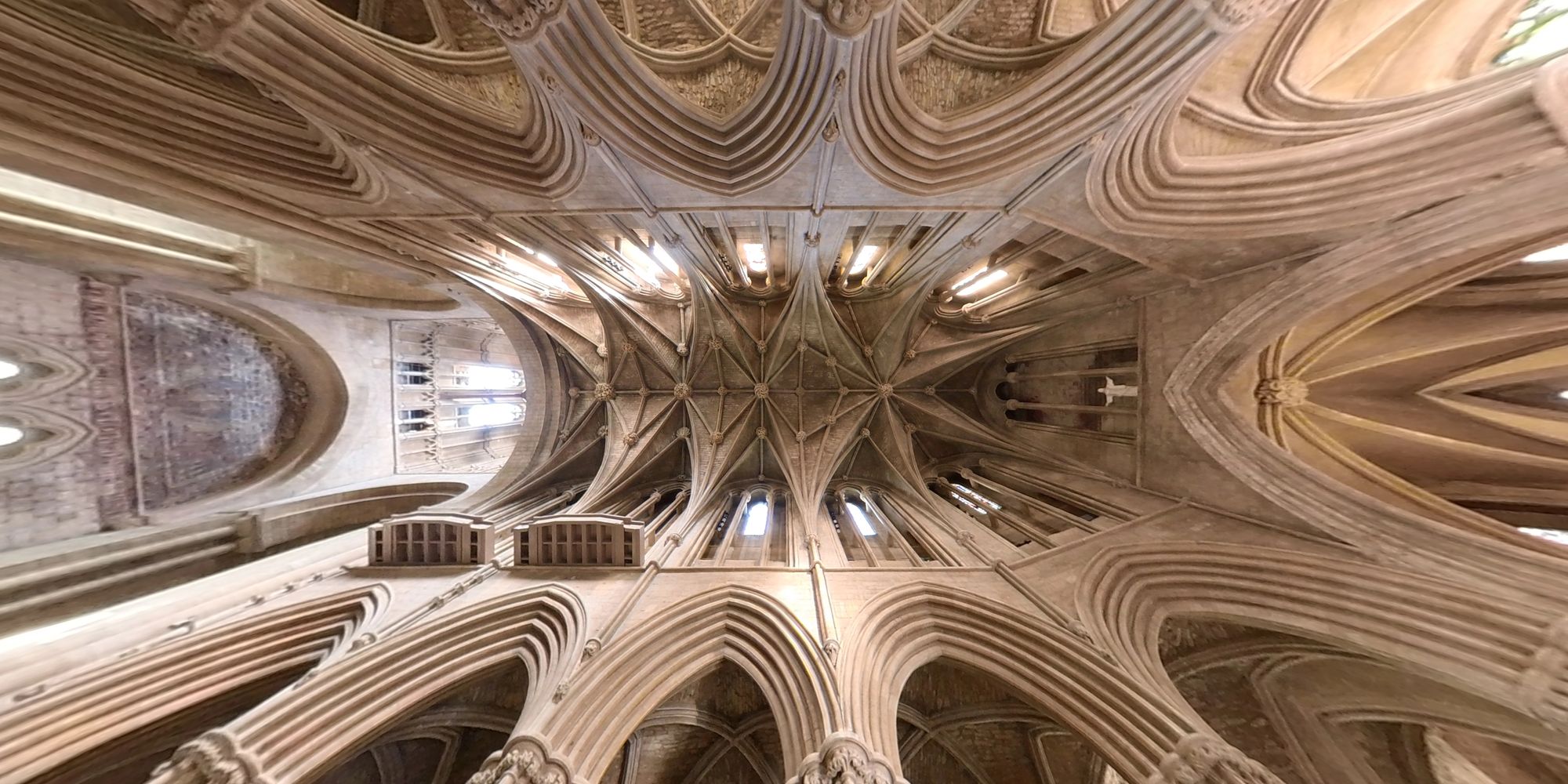
One remarkable feature of the church is its free-standing ringing platform. The platform hovers within the void of the lantern tower and the bellringers have to take a circuitous route to get to it. The platform is marked with the red arrow below:
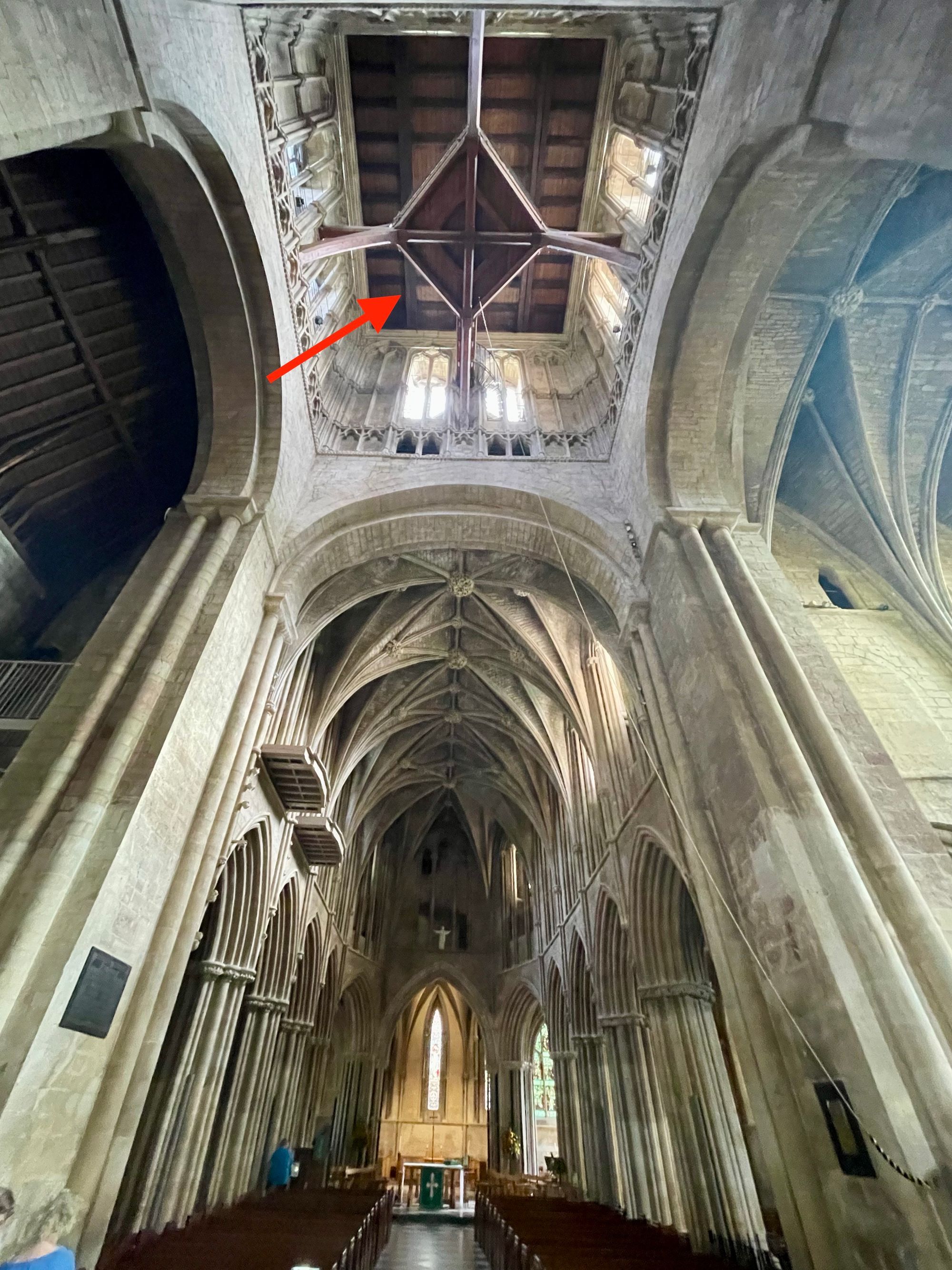
The font is Romanesque with a carved relief of seated figures under a billet-moulded arcade.
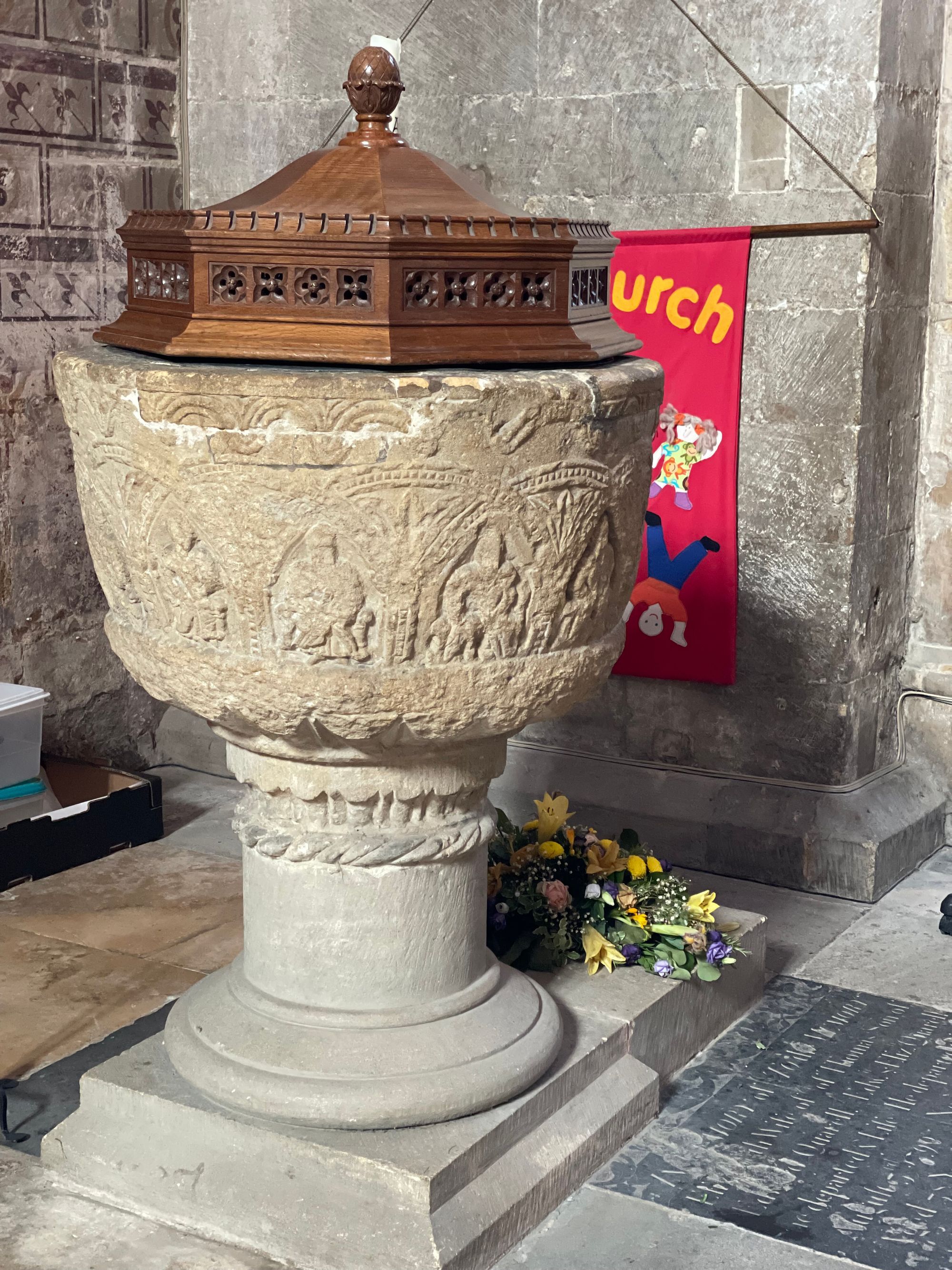
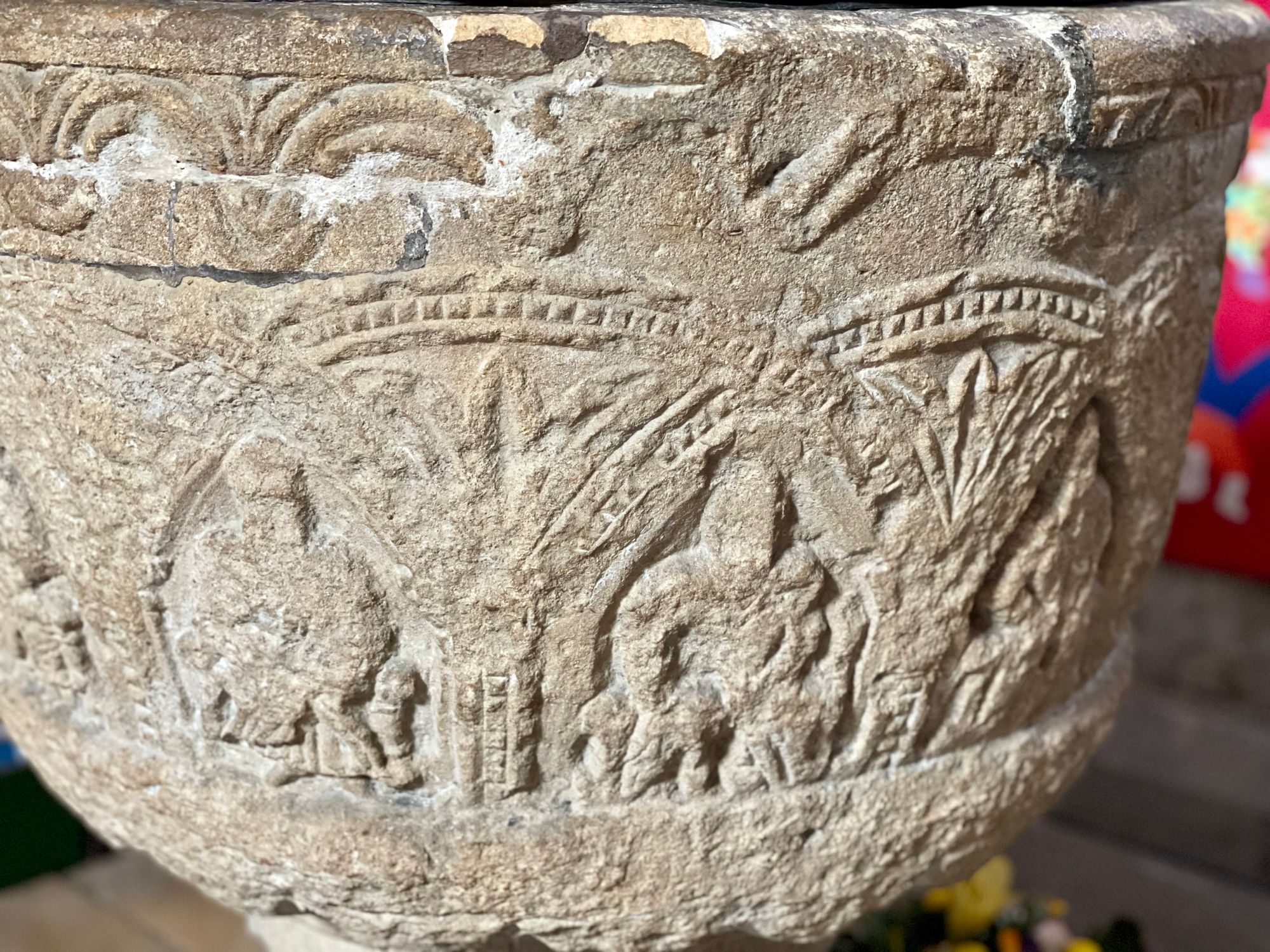
A C13 crusader's tomb can be found in the south transept - thought to be Sir William de Harley.
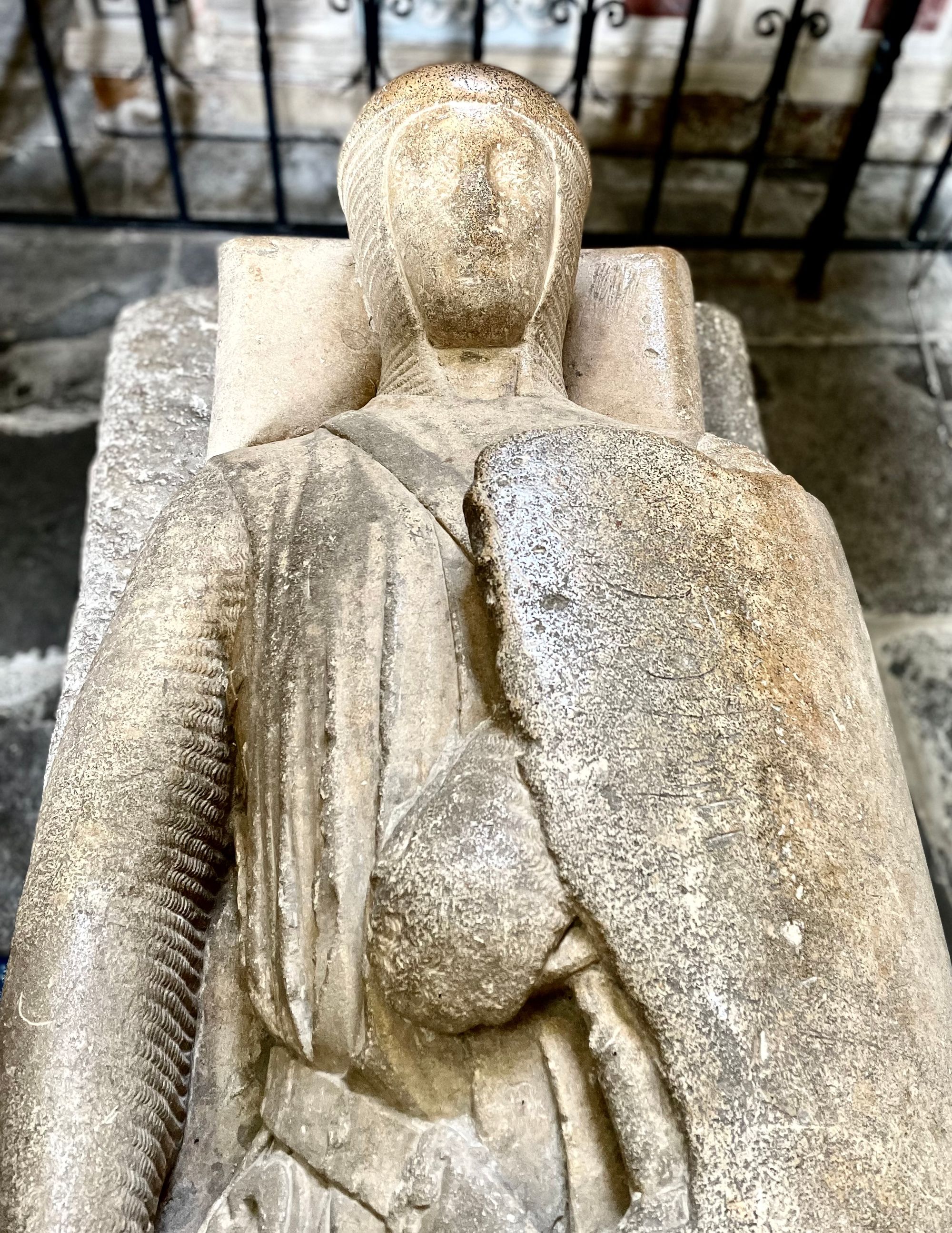
Another tomb is of the early C17th to Thomas Harewood. Whilst deeply respecting the meaning behind a monument, I always find a joy in their visual expression - the fashions and fads of the age are made all the more tart by the passing of time.
A photograph can have the same effect. Take a photograph now of a street in any town and the subject matter that stands out might be the buildings - but look at it one hundred years from now, and the eye will be drawn to the odd looking cars, the clothes that the people are wearing and the logos on shop fronts that are now defunct.
It is the same with monuments. This one says: "we were informed enough to adorn our monument with the latest fashions of the Northern Renaissance." They probably had access to a pattern book and cherry picked the devices on display. The scagliola corinthian columns are particularly refined.
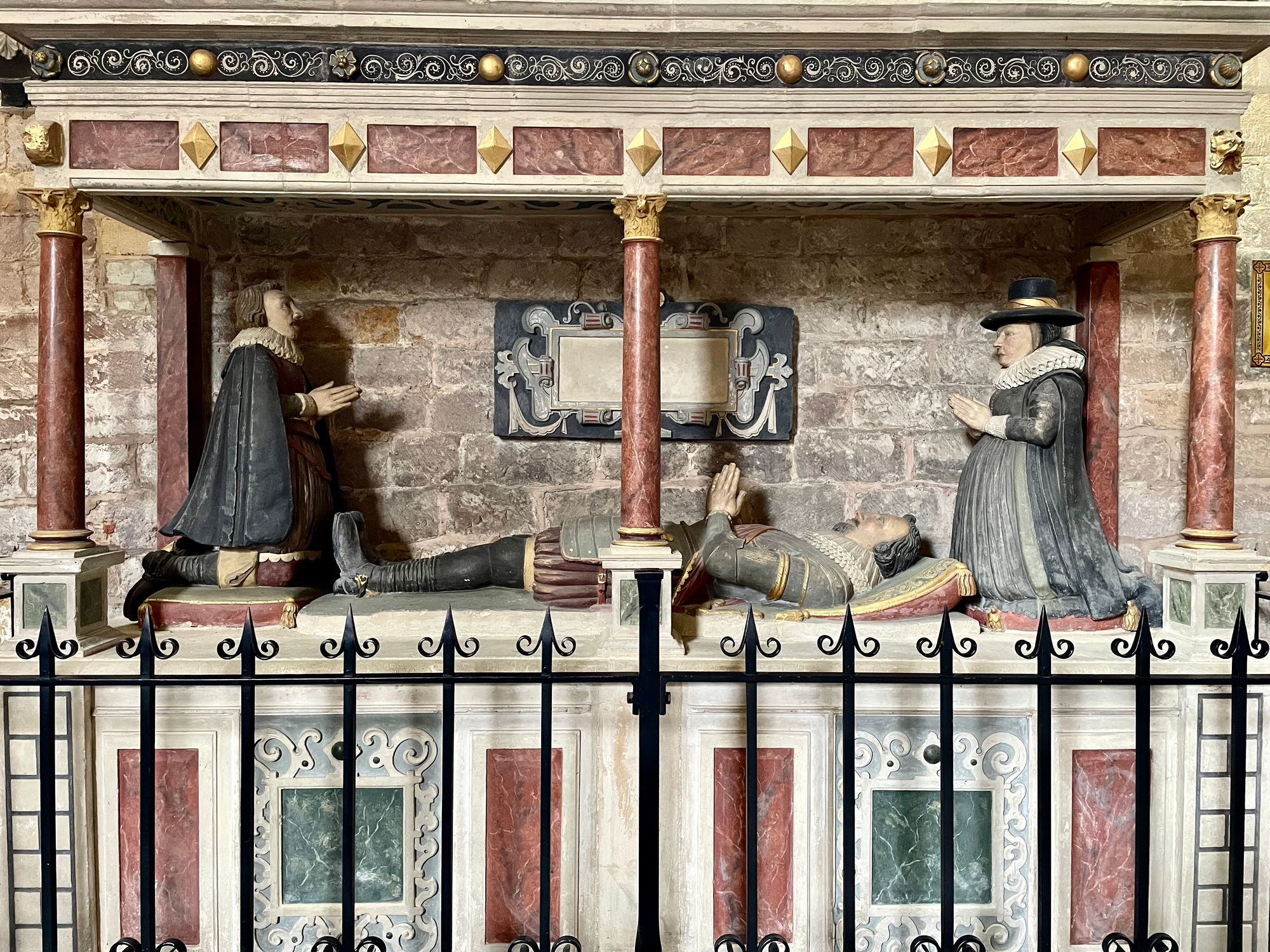
It's very contemporary. If I had the chance to design my own tomb - my hands would be similar to the main incumbent above - but they would be holding an iPhone and my finger would be in perpetual scroll. There would be a tripod by my side and hovering above my head, I'd have a DJI Mini 3 Pro. At the base of my feet, instead of a mourning lion - I'd have a model of my camper van Woody shoring up my feet.

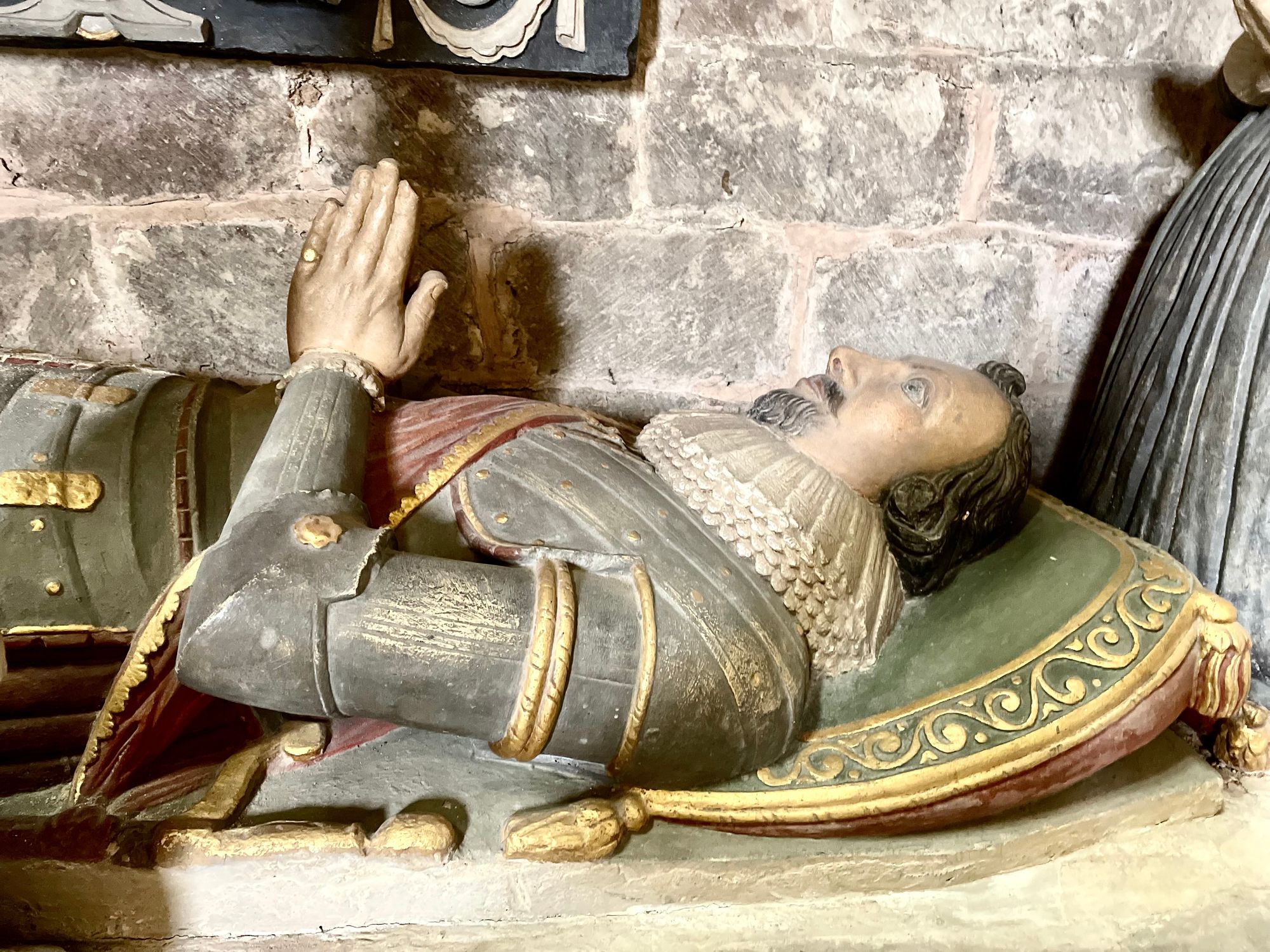
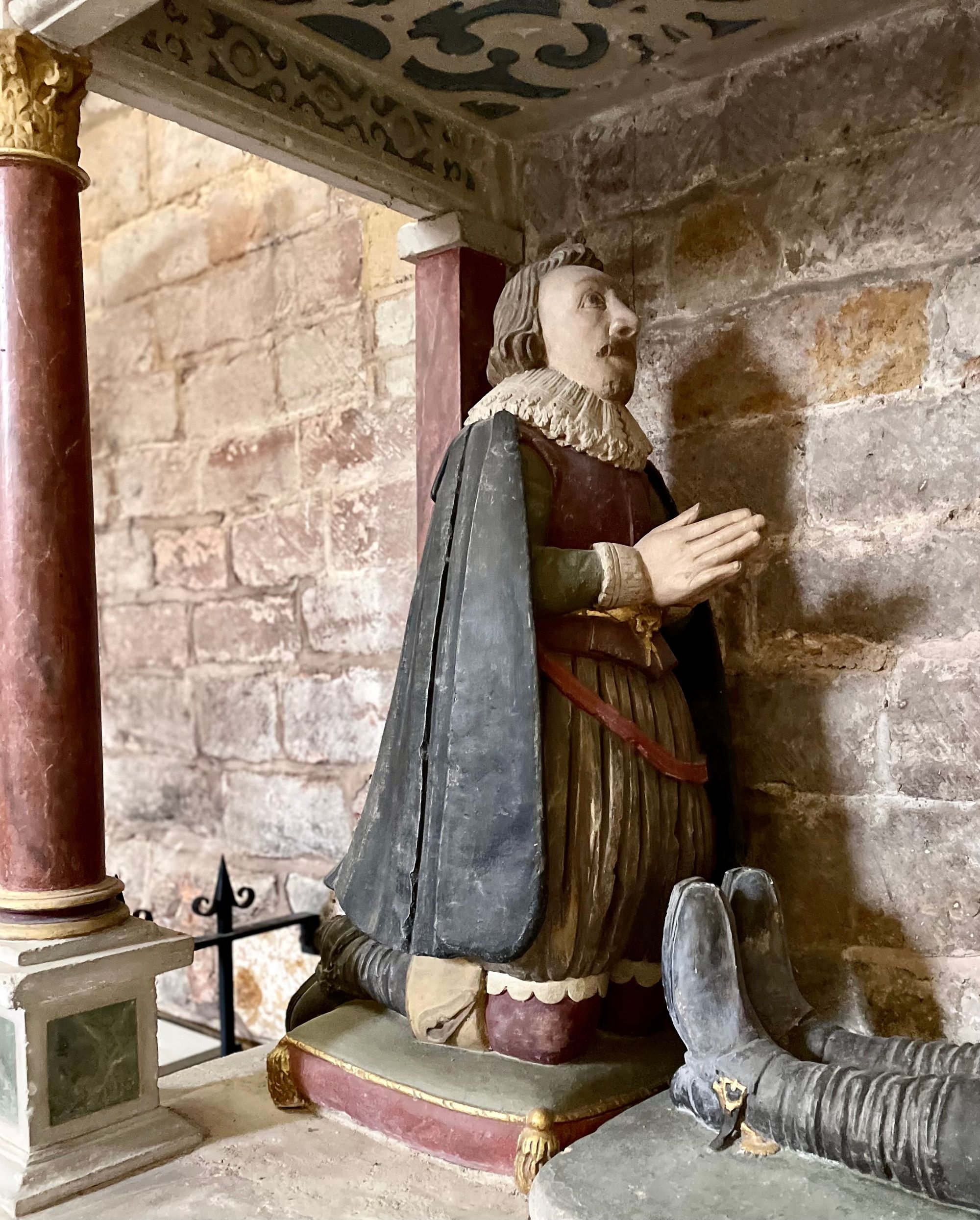
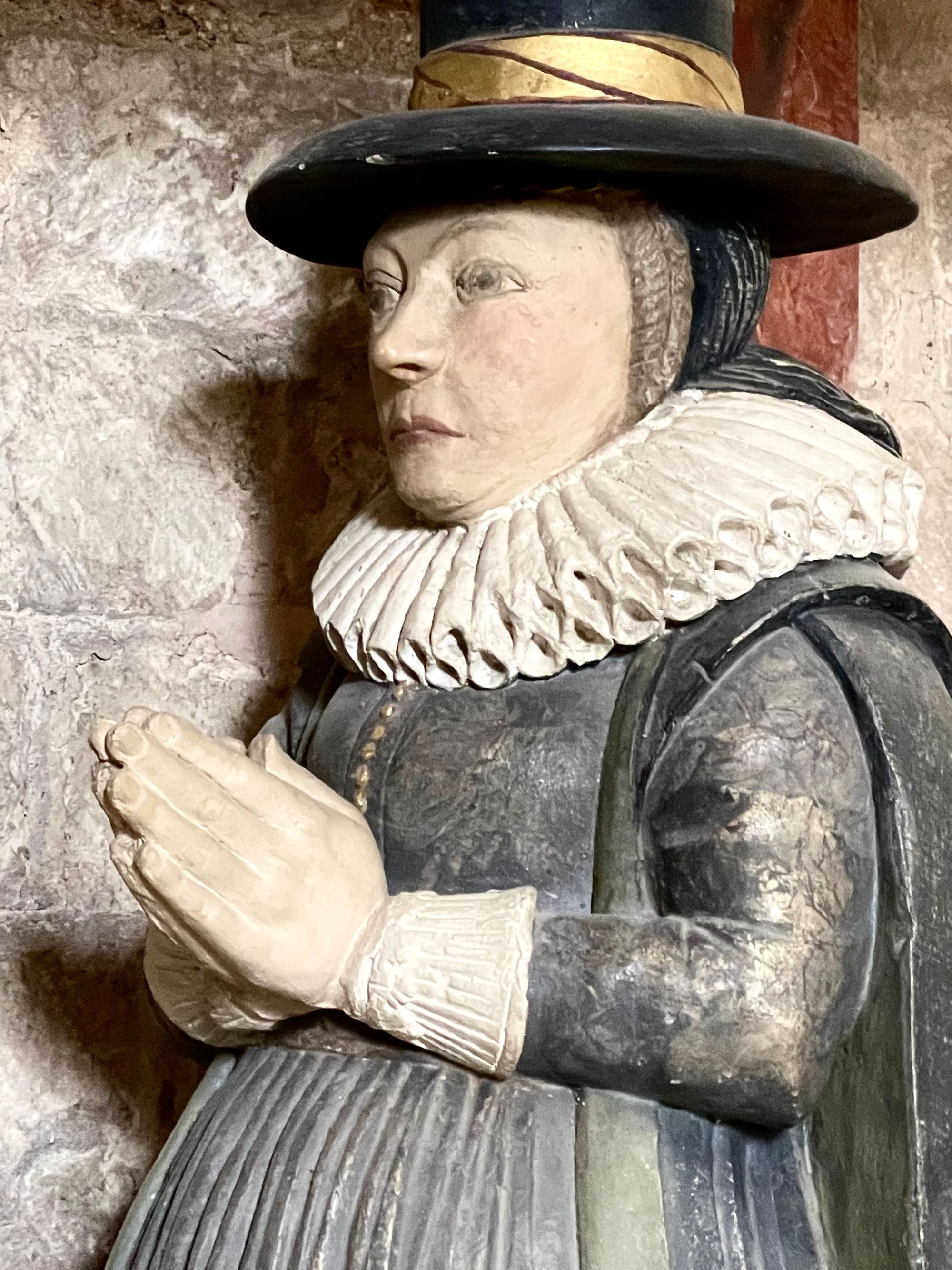
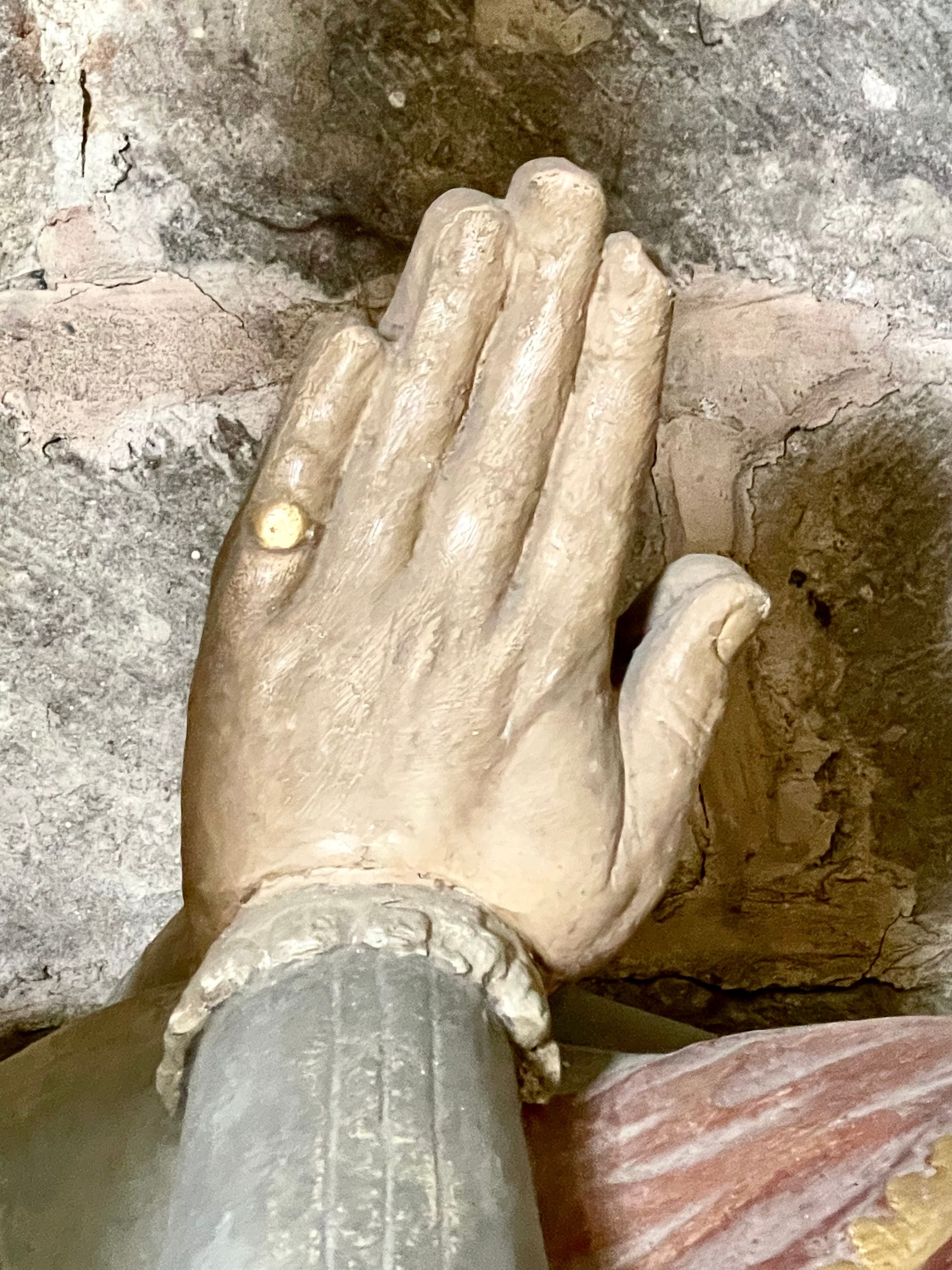
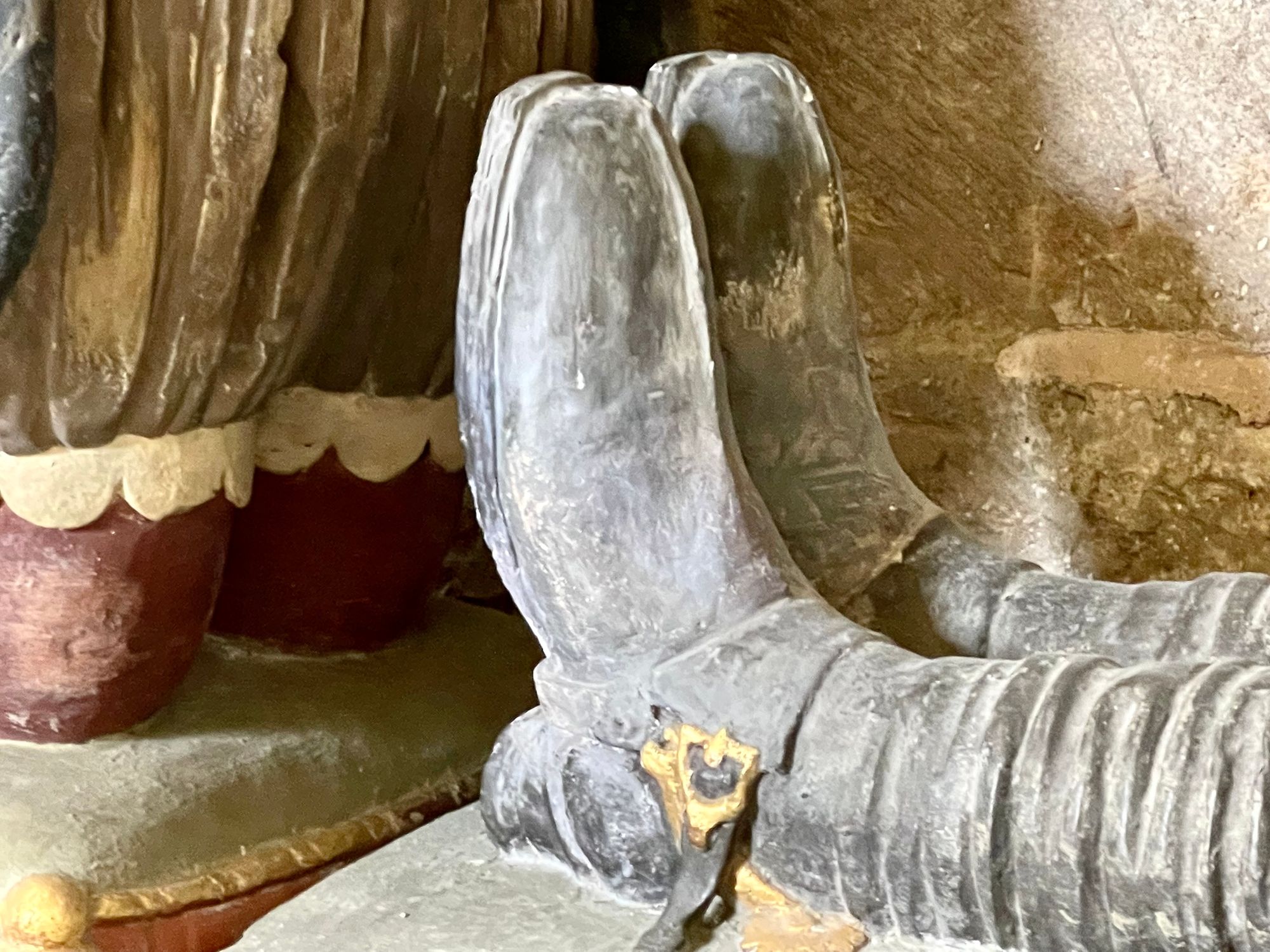
A scroll through the buildings of Pershore
CLICK HERE TO GO FOR A SCROLL...The van can be hooked up to 240v electricity which will run a normal toaster - but when it's off-grid, I find this wire rack really useful. Great for roasting vegetables etc over a fire too.

My sunflower reminds me that Ukraine was invaded almost 12 months ago. It shall stay there until the war is over.

This book is from a friend, Steve Tomlin's library.
It's a book of wonderment that has such a lot to say.
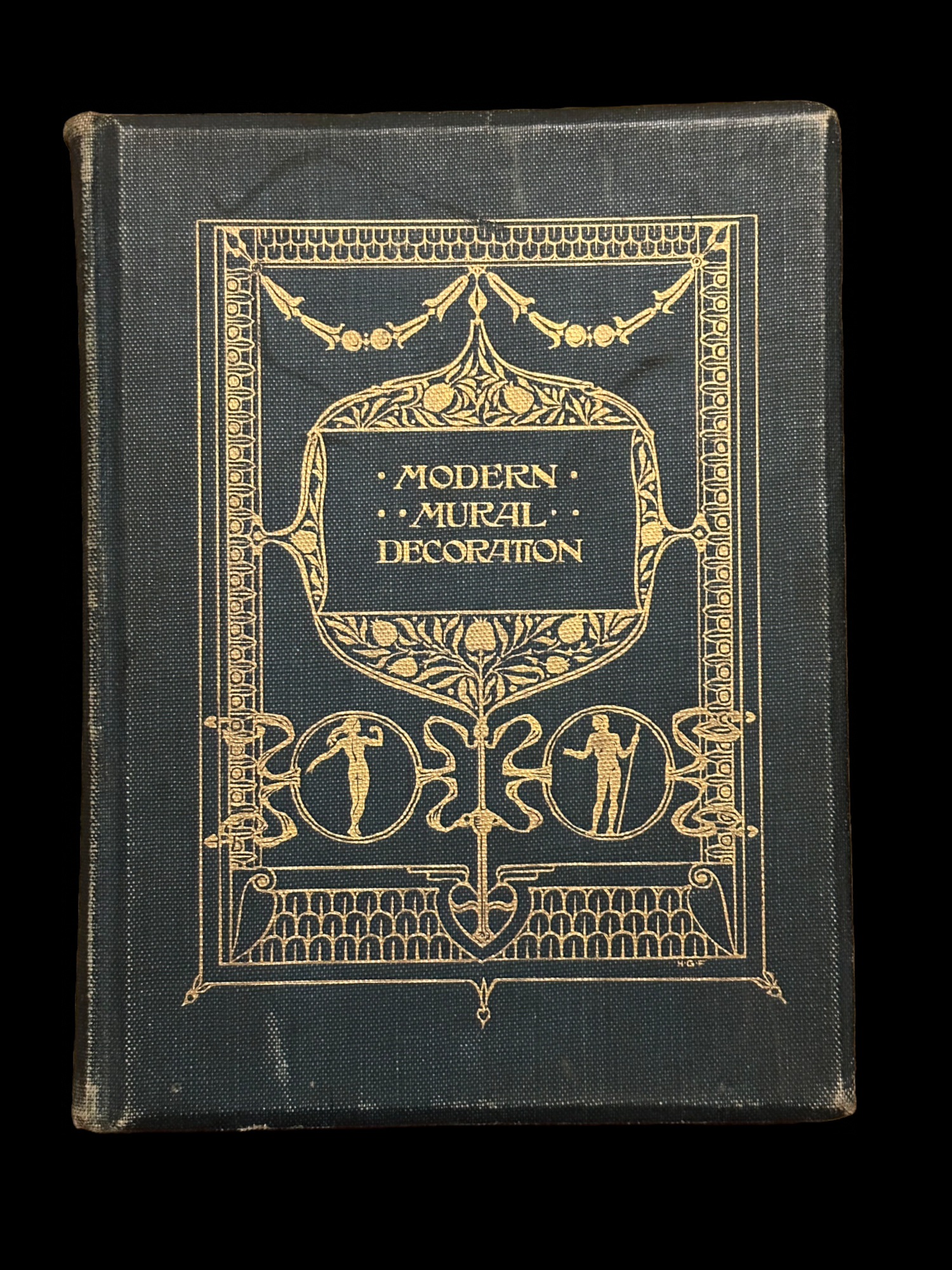
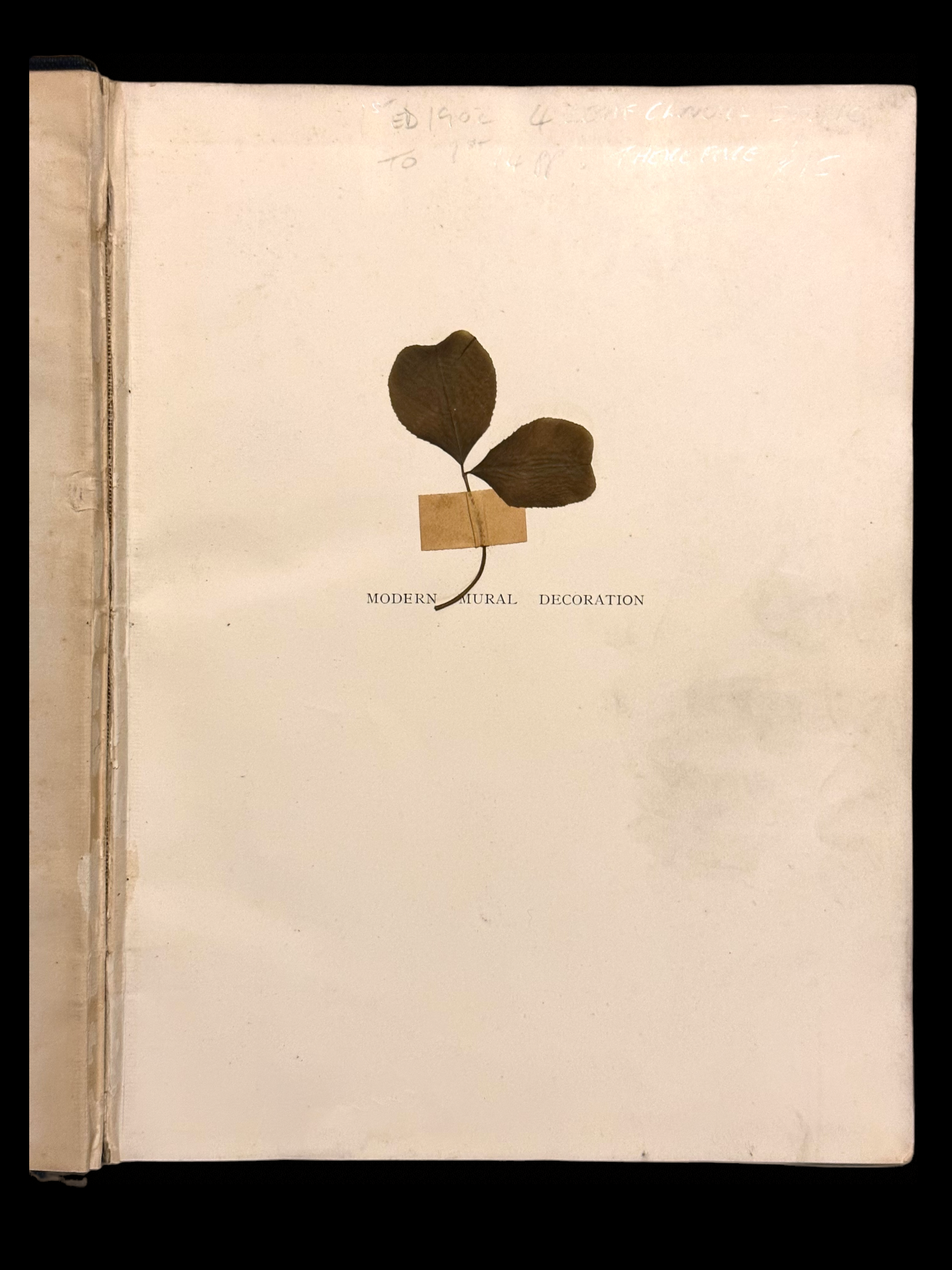
What does a book say that holds page after page of four leaf clovers? What does it tell us about the person behind it - the intent behind the fourth leaf? Was this book on Modern Mural Decoration chosen on purpose? Is the pencilled name on the inner leaf the perpetrator?
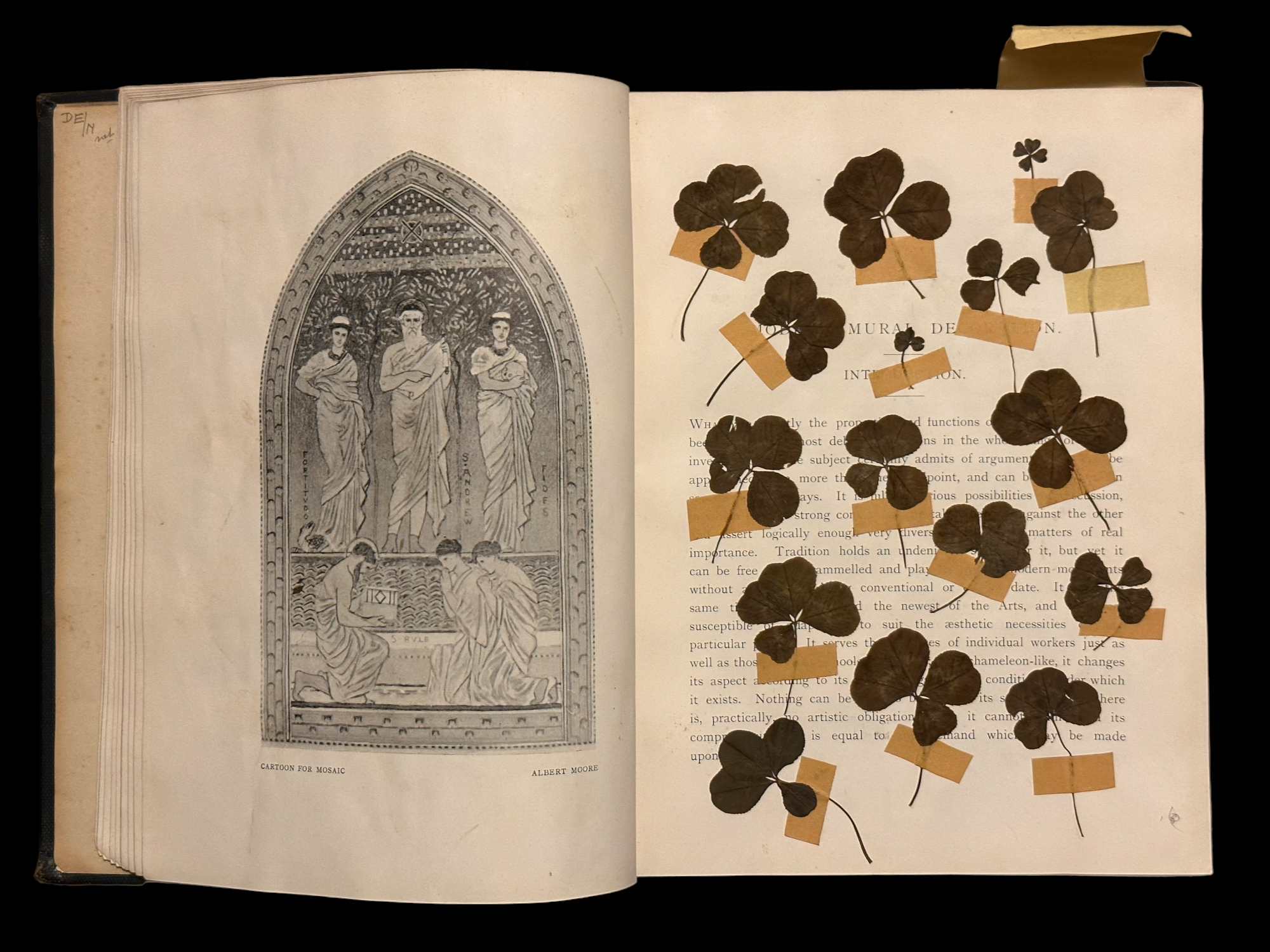
Does it represent a lifetime in four leaf clovers?
Is it coincidence that 'Unluckily' is the first word I see ont the page below?
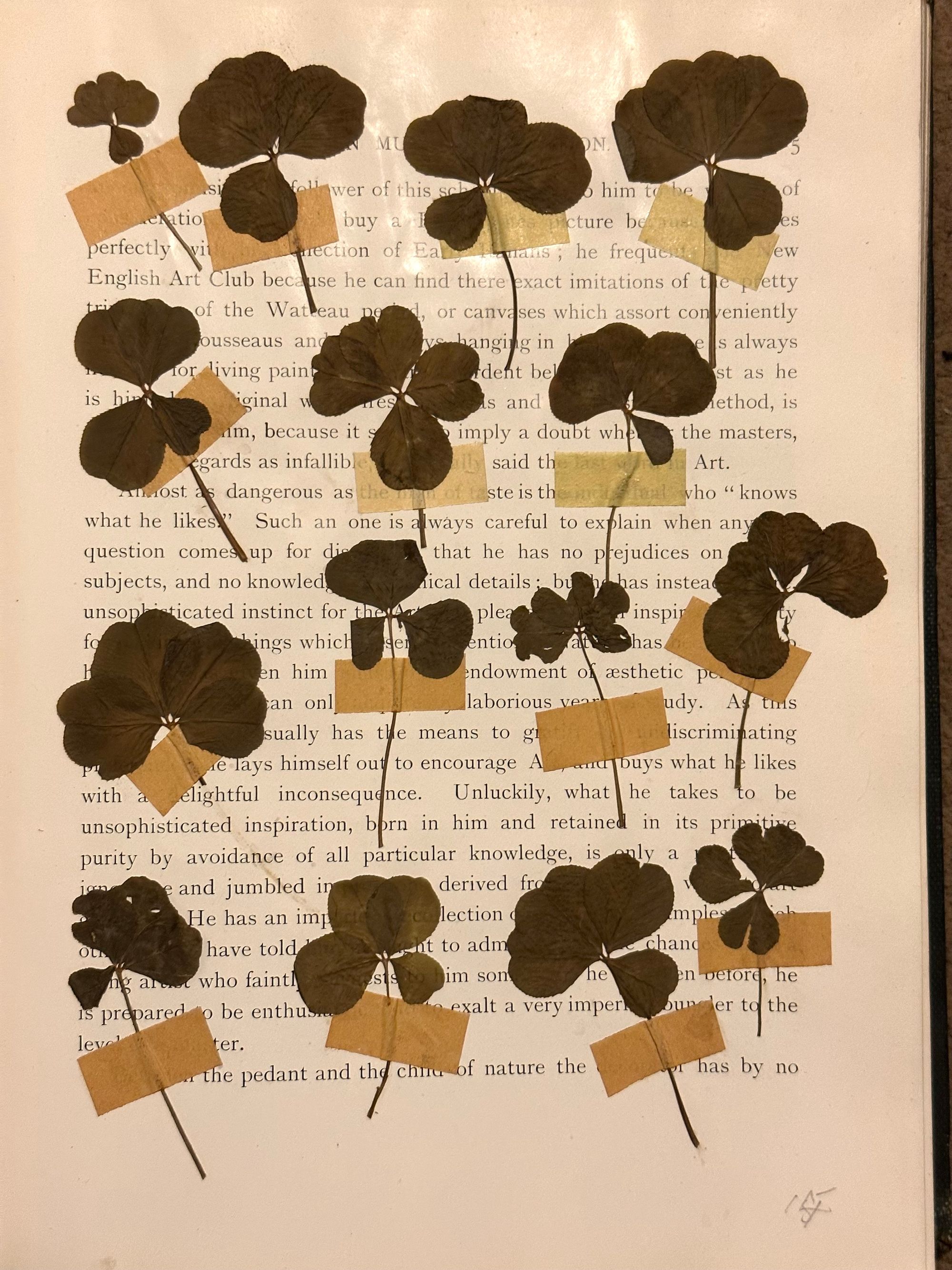
Was each clover from the same patch of field where the bookish-clover-lover lived, or did they collect the clovers from their travels?
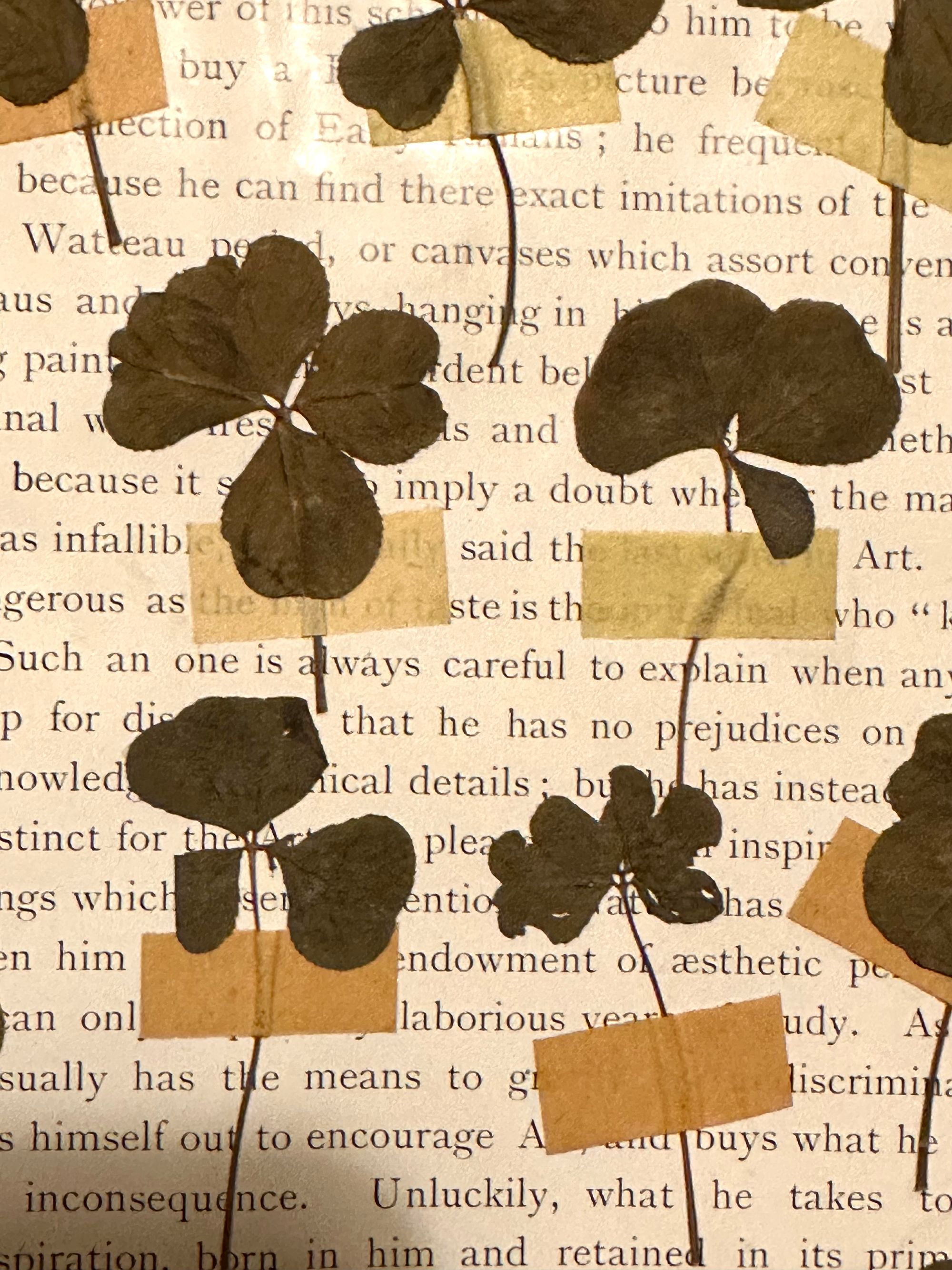
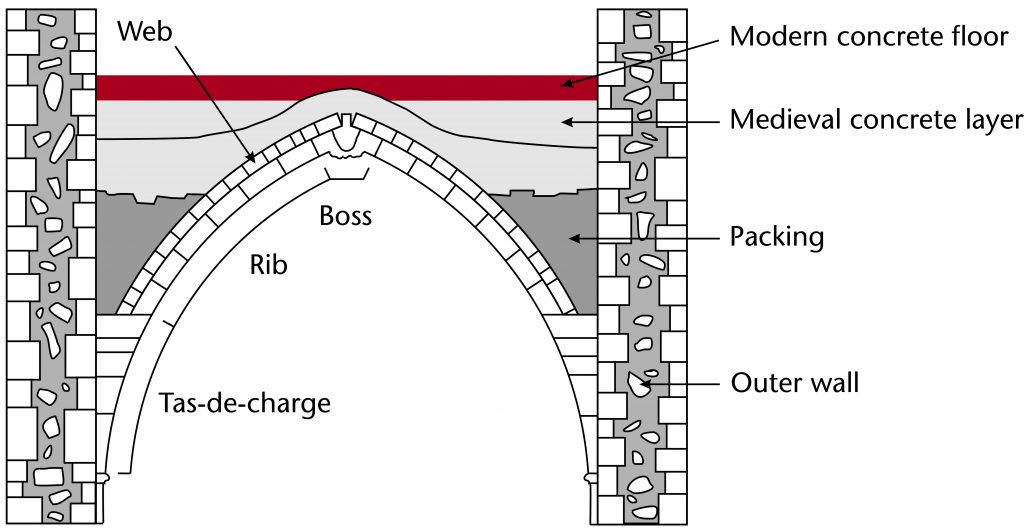
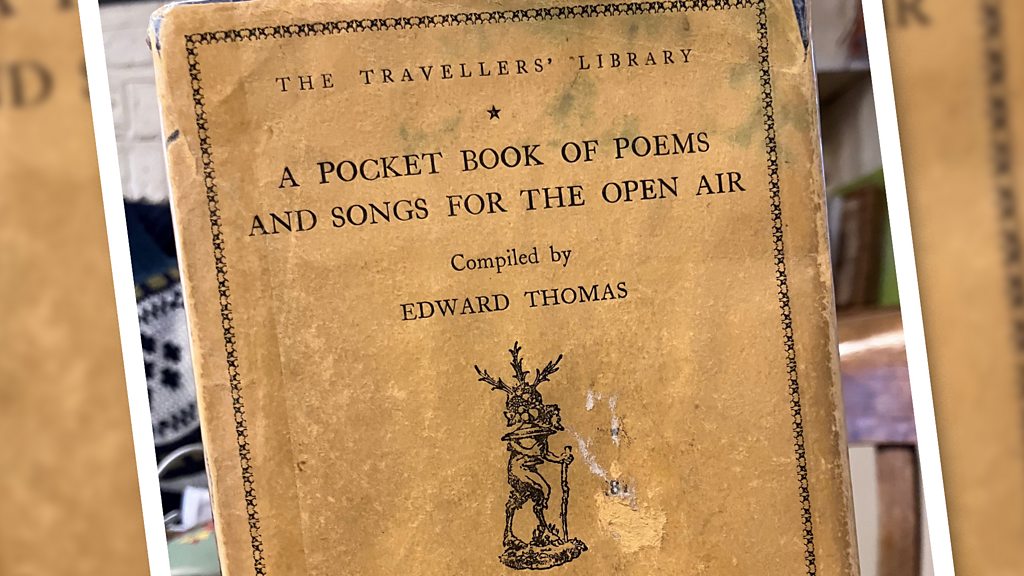
Comforted by continuity..
I do love the phrase ‘comforted by continuity’
— Darkpeakbirder (@darkpeakbirder) February 12, 2023
As I get older this becomes increasingly important to me.
Members' Area
Before clicking below, strap yourself in, let Woody do the time-travelling...
Click here for Members' AreaIt takes a day a week to produce this digest. With your support, I’m able to keep this digest free and public facing. 📸🏛🚐
Support this digest and get access to a world of immersive content. Click the box below to check out the membership options:
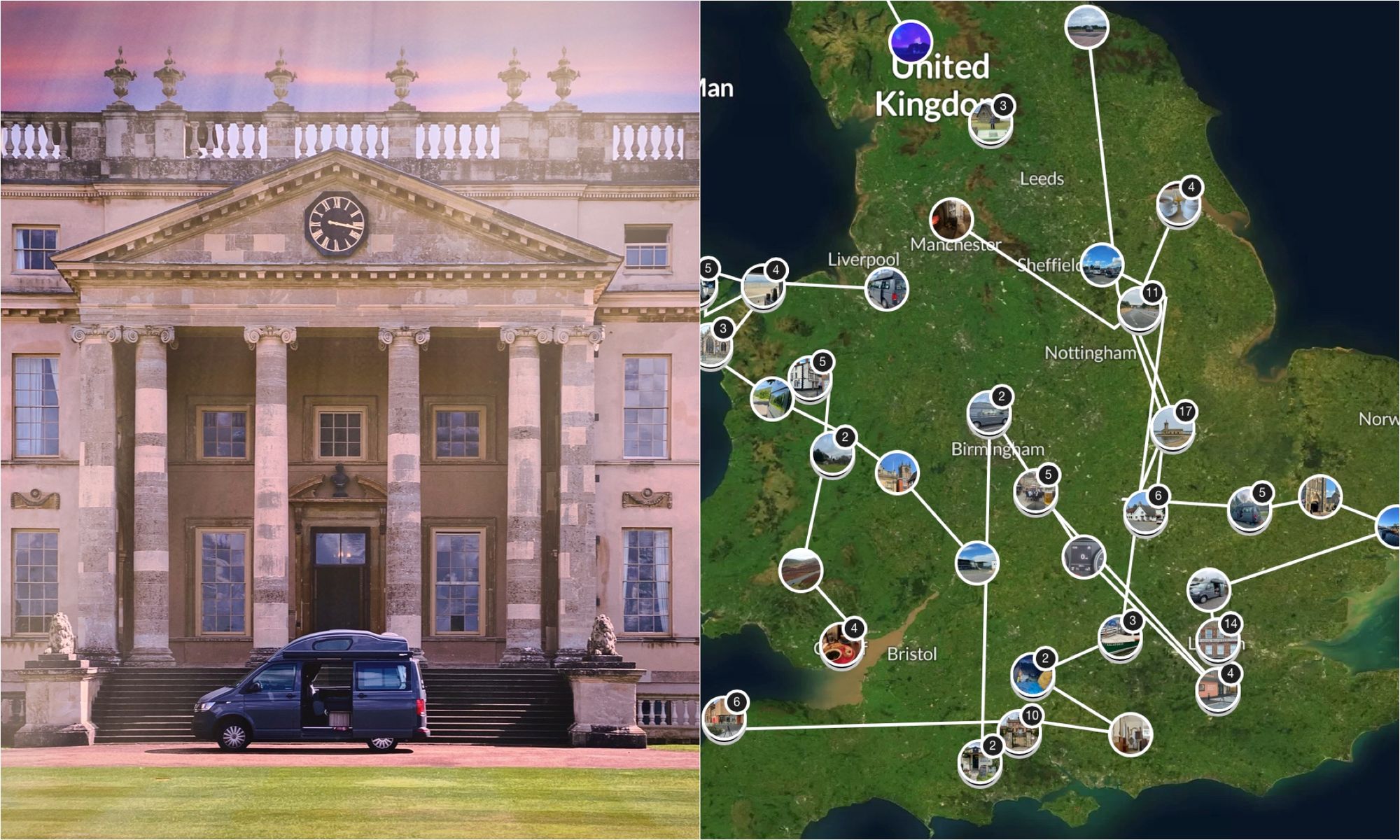
You can gift a membership to somebody else. They will receive an email with a message from you, and instructions on how to activate it. Gift Memberships can last indefinitely or can be limited to 12 months.
I have a limited number of free memberships available for students studying heritage, tourism, architecture, photography, building conservation, history of art, archaeology. Also students studying the built environment and its impact on mental health and wellbeing. If you'd like to apply, drop me a line with your details.
Really recommend following Andy capturing architecture & urban design across the UK, reminds me of history trips while studying, guided by the formidable arch historian Prof James Stevens Curl https://t.co/N256WxUUyc
— Dr Gill Armstrong MCIAT ARB ❤️🏙📈 (@arch_lintel) January 3, 2023
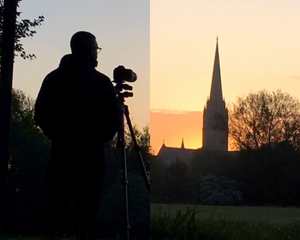




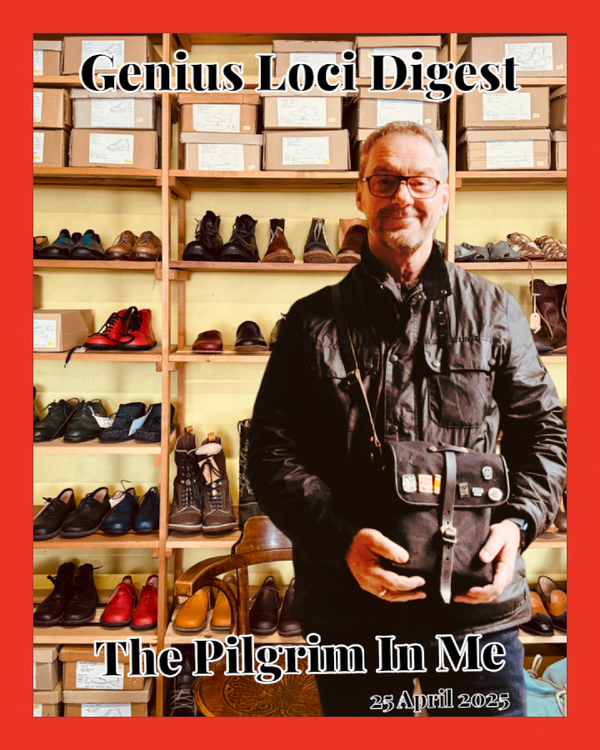
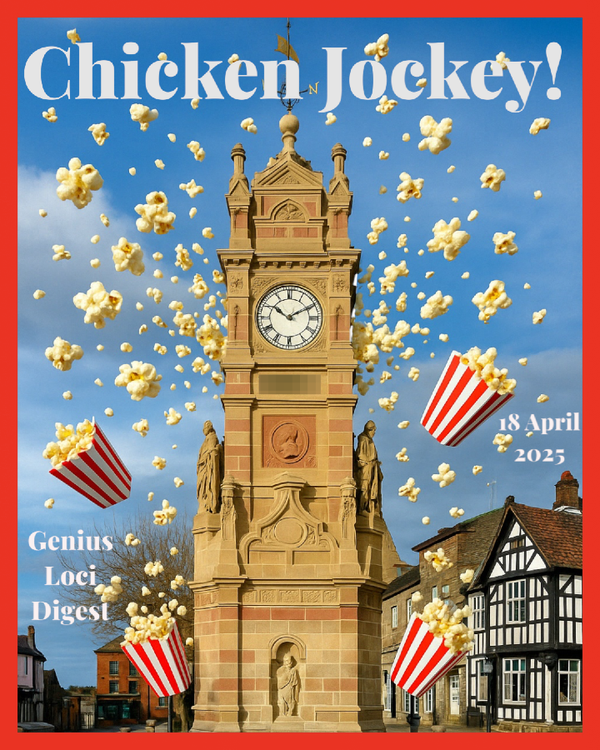
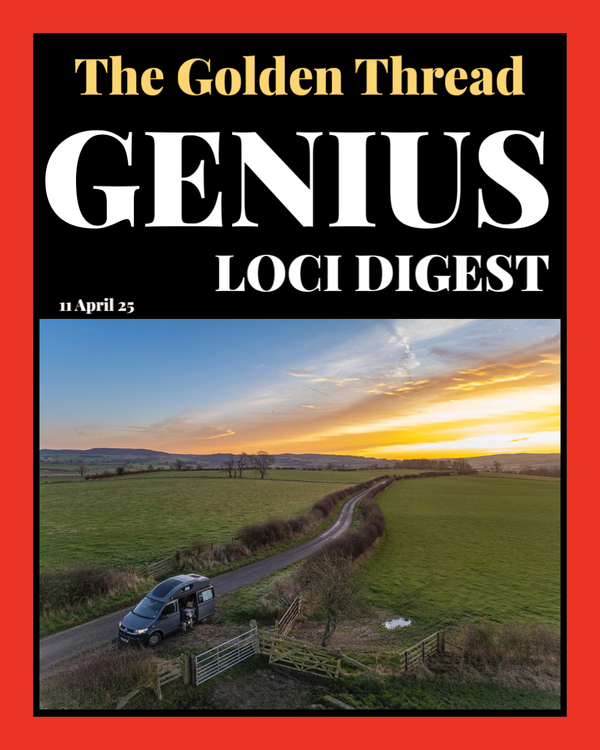
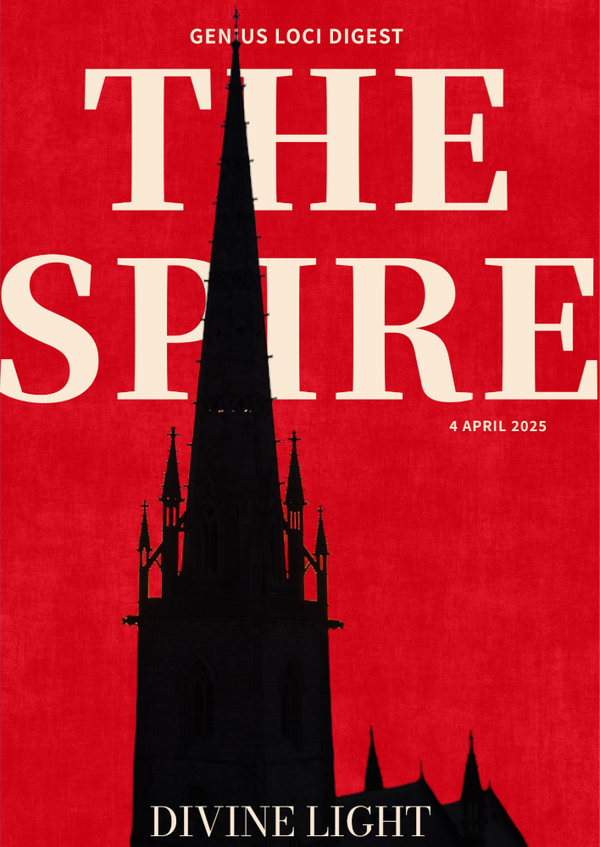
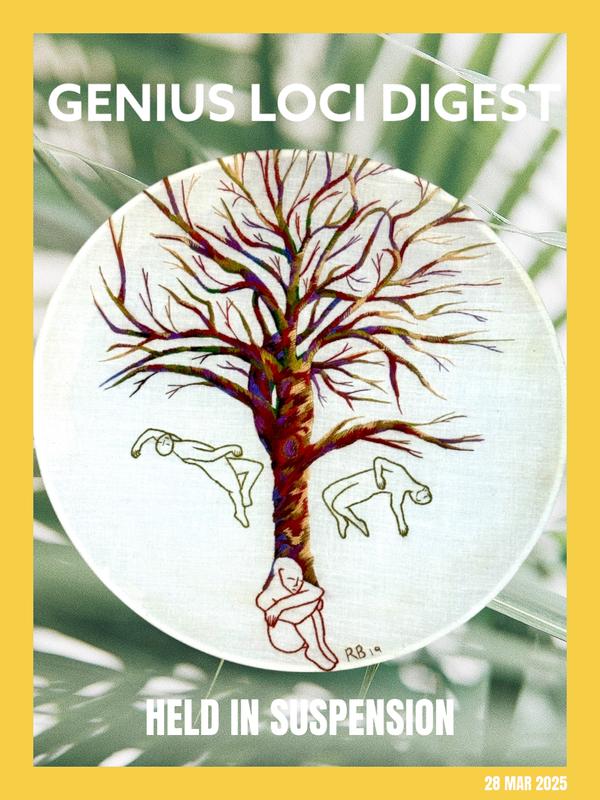
Member discussion